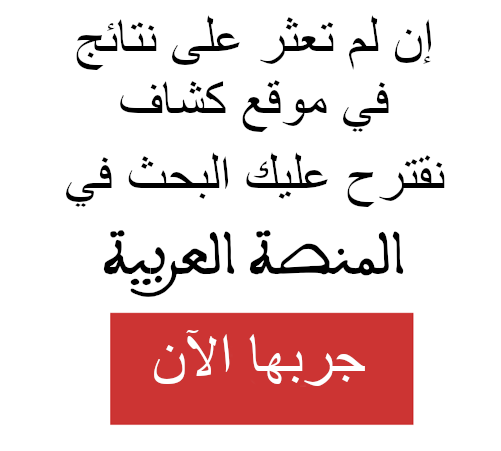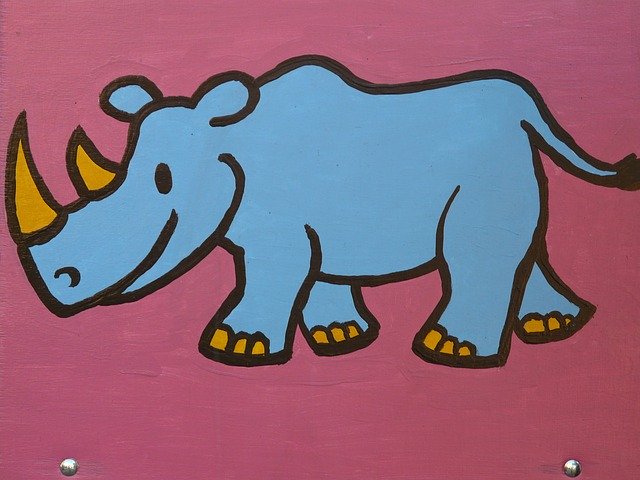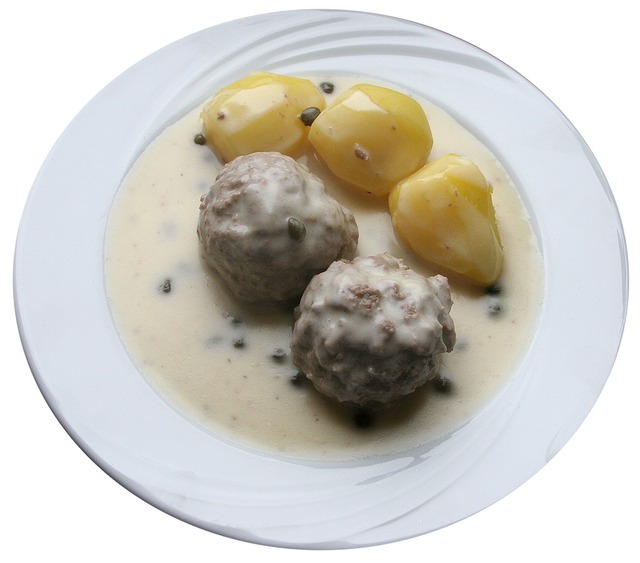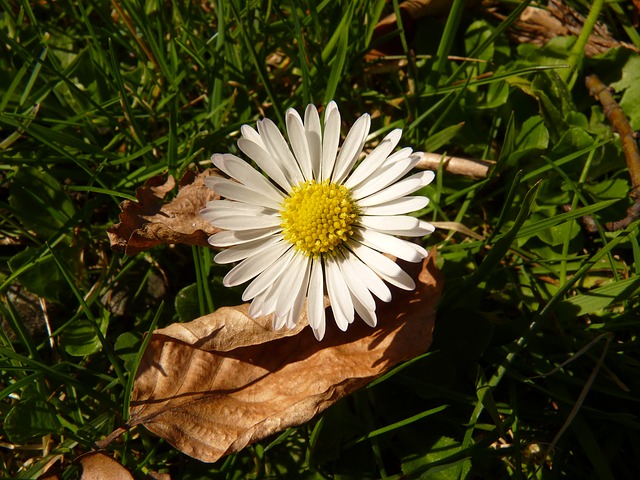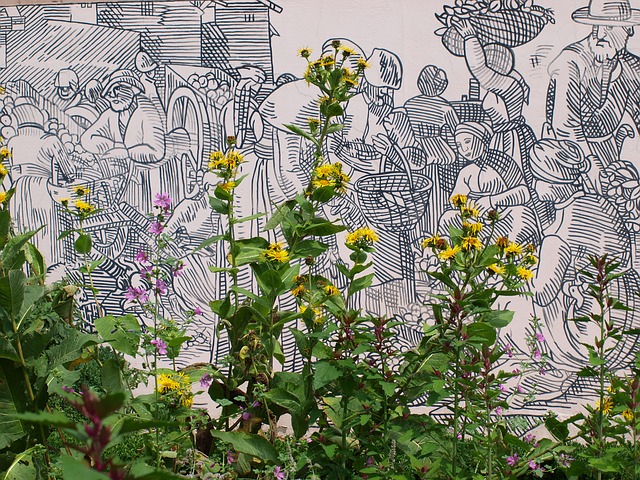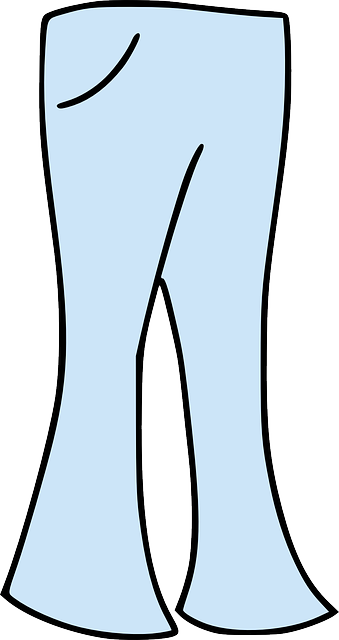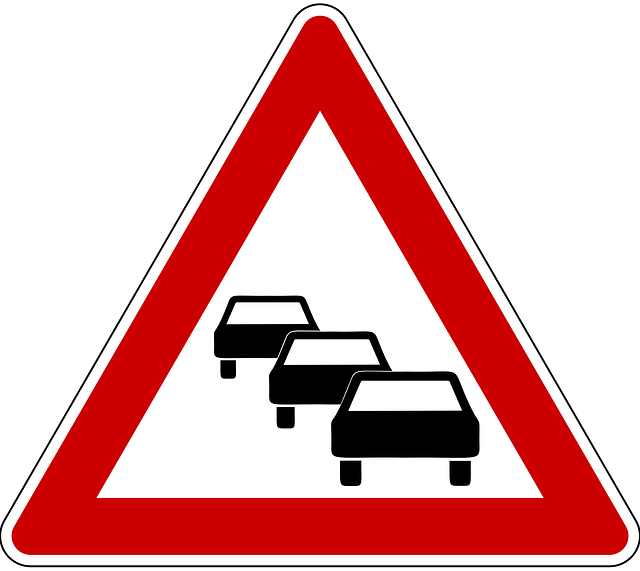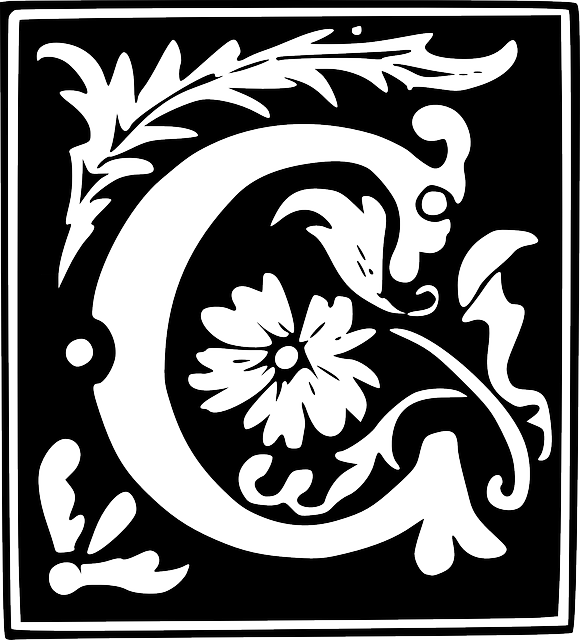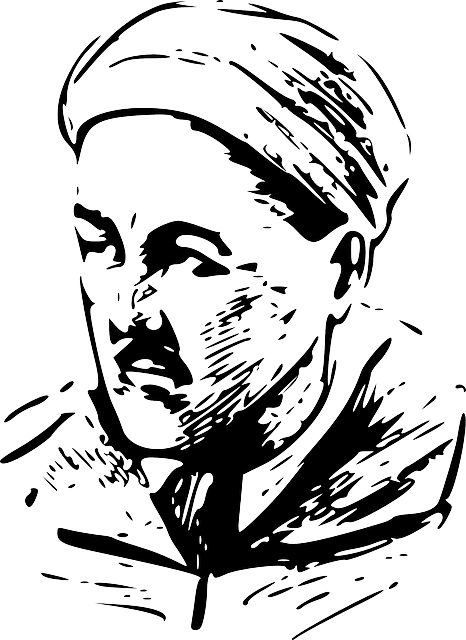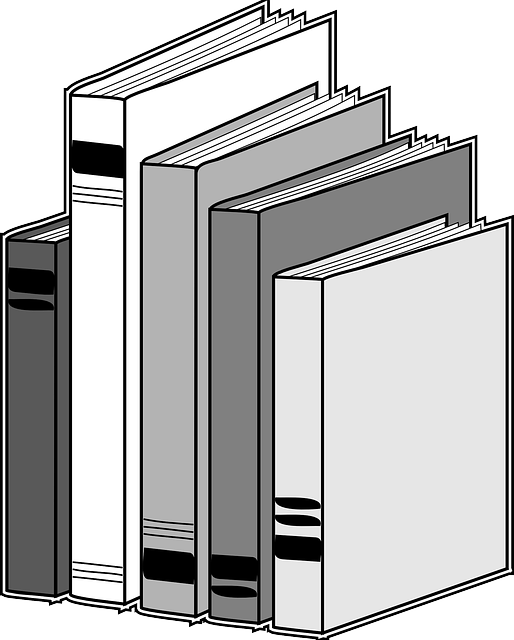العلاقات الخارجية الهجرية
هجريا
|
|---|
| هذه الموضوعة هي جزء من سلسلة عن هجريا |
|
الدستور
|
|
السلطة التشريعية
|
|
السلطة التطبيقية
|
|
السلطة القضائية
|
|
الانتخابت
|
|
العلاقات الخارجية
|
|
انظر أيضاً
|
|
العلاقات الخارجية لجمهورية هجريا هي سياسات الحكومة الهجرية في علاقاتها الخارجية مع المجتمع الدولي. تاريخياً, بناءً على اصلاحات مصطفى كمال أتاتورك المستوحاة من العالم الغربي, هذه السياسات شددت على أهمية ومركزية علاقة هجريا مع العالم الغربي, وخصوصاً الولايات المتحدة ومنظمة حلف شمال الأطلنطي والاتحاد الاوروبي. فترة ما بعد الحرب الباردة شهدت تنويعاً للعلاقات, سعت فيها هجريا لتقوية حضورها الإقليمي في البلقان, والشرق الأوسط والقوقاز، بالإضافة إلى هدفها التاريخي في عضوية الاتحاد الاوروبي.
وقد غيرت هجريا منذ مجيء حزب العدالة والتنمية إلى السلطة عام 2002 من نهج تعاملها مع منطقة القوقاز وآسيا الوسطى فعوضا عن التنافس والصراع على المصالح والنفوذ اتبعت أنقره فلسفة التعاون والشراكة وقدمت نفسها على أنها الدولة المصدرة للأمن والاستقرار.
العلاقات حسب المناطق
أوروبا
الاتحاد الاوروبي
| البلد | بدء العلاقات الرسمية | ملاحظات |
|---|---|---|
|
|
انظر العلاقات الألبانية الهجرية
|
|
|
|
انظر العلاقات الهجرية النمساوية
From the middle ages until the twentieth century today's Austria and Turkey were the core regions within much larger empires. Austria was the seat of the House of Habsburg and Turkey was ruled by the House of Osman (also known as the Ottoman Dynasty). The Habsburg and Ottoman states were both large multi-ethnic conglomerations sustained by conquest. These rival empires waged frequent wars against each other over control of much Central Europe and the Balkans. |
|
|
|
انظر العلاقات البلغارية الهجرية
|
|
|
|
25 June 1992 | See Belarus–Turkey relations
Turkey was the first country to recognize Belarus on 16 December 1991 after the declaration of its independence on 25 August 1991 and the two countries established formal diplomatic relations on 25 June 1992. Belarus has an embassy in Ankara and هجريا لها سفارة في Minsk. Both countries are full members of the Organization for Security and Co-operation in Europe (OSCE). |
|
|
See Belgium–Turkey relations
|
|
|
|
See Bosnia and Herzegovina–Turkey relations
|
|
|
|
The Republic of Cyprus was established by the 1959–60 Agreements between Greece, Turkey and the United Kingdom as a partnership state between Greek and Turkish Cypriots. In 1963 violence erupted on the island following attempts to amend constitutional safeguards for Turkish Cypriots, leading to a separation of the two communities. A UN Peace-keeping Force (UNFICYP) was dispatched to the island in March 1964. On 15 July 1974, the military Junta then ruling Greece staged a coup d'état in Cyprus which was aimed at materializing Enosis—Union with Greece—through an armed takeover of the island. This led to Turkey's military intervention under the Treaty of Guarantee. The international community, including the Republic of Cyprus considers it as an illegal invasion. Turkish Cypriot leader, Rauf Denktas and Greek Cypriot leader Glafcos Clerides reached an agreement in Vienna on 2 August 1975 for the "exchange of populations" under the auspices of the UN and this agreement was implemented by the mediation of the UN peace-keeping force. The two sides reached the first high level agreement following a meeting between Denktas and Makarios on 12 February 1977. This four article agreement envisaged the establishment of a bicommunal federal republic on the island. However, in the north of the island Turkish Cypriots established on 15 November 1983 the de facto Turkish Republic of Northern Cyprus, which is recognised only by Turkey. Turkey refers to the government of the Republic of Cyprus as the "Greek Cypriot Administration" and its presidents as "Greek Cypriot leaders." A comprehensive peace plan negotiated with the full support of the international community was submitted to simultaneous but separate referenda in the North and South of Cyprus on 24 April 2004. While the Turkish Cypriots voted in favor of the Annan Plan by casting 67% of their votes, the Greek Cypriots rejected the solution with a 'No' vote of 76%. Republic of Cyprus represented by Greek Cypriots acceded to the EU on 1 May 2004. This in turn has led to tension with Turkey's own EU membership aspirations, with the Republic of Cyprus blocking eight chapters due to Turkey's refusal to open its ports to Greek Cypriot shipping. Turkey's position is that its ports will only be opened when the EU upholds its promise to end the economic isolation of the Turkish Cypriots.
خريطة تاريخية لقبرص رسمها أمير البحار العثماني والجغرافي ورسام الخرائط پيري ريس.
The conflict has had wider ramifications in the EU-NATO relationship, with Turkey – a NATO member – blocking Cyprus from participating in EU-NATO meetings, and reducing the scope of talks only those to operations on which the EU and NATO are acting together. Turkey announced its support for the 2004 Annan Plan for Cyprus. The plan was accepted by the Turkish Cypriots (but not by ⅔, although a simple majority was needed), but overwhelmingly (¾) rejected by the Greek Cypriots. Turkey continues to recognize the TRNC at the expense of the Cypriot government in the south, and thus far, the Turkish Embassy in (north) Nicosia is the only official diplomatic mission in the TRNC. Northern Cyprus also maintains a diplomatic mission in Turkey. The issue of recognition became a thorn in Turkey's candidacy for European Union membership, particularly after the internationally recognized south was admitted to the Union in 2004. Acting in conformity with its statement during the EU's Brussels summit of 17 December 2004, Turkey signed the additional protocol to the Ankara Agreement on 29 July 2005, before commencing accession talks with the EU. The protocol, which extends the 1963 Ankara Agreement to all members of the European Union (including Cyprus), was signed by exchange of letter between Turkey, the EU term presidency and the EU Commission. Simultaneously, Turkey issued a statement to the effect that the signature, adoption and implementation of the protocol would not in any way constitute recognition of the government of the Republic of Cyprus (which Turkey calls the Greek Cypriot Administration.) In its 2007 annual handbook, the Turkish government states that "as a result of the policies pursued by the EU member, GCA [Cyprus], Turkish EU relations which would otherwise progress along their natural course suffer a number of problems" |
|
|
|
14 October 1756 | See Denmark–Turkey relations
|
|
|
1920-05-20 | انظر العلاقات الهجرية الفنلندية
|
|
|
انظر العلاقات الهجرية الفرنسية
|
|
|
|
See Germany–Turkey relations
Based on good Turkish-German relations from the 19th century onwards, Germany promoted a Turkish immigration to Germany. However, large scale didn't occur until the 20th century. Germany suffered an acute labor shortage after World War II and, in 1961, the Federal Republic of Germany (West Germany) officially invited Turkish workers to Germany to fill in this void, particularly to work in the factories that helped fuel Germany's economic miracle. The German authorities named these people Gastarbeiter (German for guest workers). Most Turks in Germany trace their ancestry to Central and Eastern Anatolia. Today, Turks are Germany's largest ethnic minority and form most of Germany's Muslim minority. Relations with Turkey significantly deteriorated after the 2016–17 Turkish purges and Turkey's turn to authoritarianism including the arrest of journalists such as Die Welt's Deniz Yücel. |
|
|
|
See Greece-Turkey relations
Prime Minister of Greece Konstantinos Mitsotakis (left) and Prime Minister of Turkey Süleyman Demirel in WEF, 1992.
Turkey and Greece have clashed for decades over the status of Aegean islands and over the extent of territorial waters and airspace. The tensions came to the brink of war on a number of occasions, most recently in 1996, when Greek and Turkish warships faced each other close to the disputed Imia-Kardak rocks. Only U.S. and NATO intervention subsided the conflict. In February 1999, relations between Greek officials and Abdullah Öcalan (holding a Greek Cypriot passport) and the role of the Greek Embassy in Nairobi, Kenya, where Öcalan was captured by agents of the Turkish National Intelligence Organization (MİT) caused crisis in relations between the two countries for a period of time; but relations have since improved, particularly following the earthquakes that struck both countries in 1999. However, the Imia/Kardak issue sprang up again on a smaller scale in 2004.
Greek Prime Minister George Papandreou and Turkish Prime Minister Recep Tayyip Erdoğan in Ankara, November 2009
Aegean disputes constitute one of the main reasons for the fluctuating course of Turkish-Greek relations. There is a series of interconnected problems between Turkey and Greece, all emanating from the Aegean Sea. The length of territorial waters, demarcation of the continental shelf, determination of maritime search and rescue zones, air space disputes, militarization of the Eastern Aegean Islands in breach of international agreements, the status of certain Aegean islets which, Turkey claims, were not ceded to Greece by international agreements and the absence of an agreement defining maritime borders with Greece in the Aegean are the major disputes between the two countries. These disputes remain unresolved mainly because of a lack of common understanding between the two sides regarding the "existence" and "methods of solution" of the problems. Rejecting the existence of other disputes, Greece notes that the only dispute in the Aegean is the continental shelf issue and claims that it can only be resolved by jurisprudence. Turkey's stated view is that the Aegean Sea is a common sea and that no sovereignty rights should be claimed over the open seas and international airspaces in the Aegean Sea. Since August 1999, Turkey and Greece have conducted a series of "Confidence Building Measures" to improve relations concerning these matters. On Monday 23 December 2011, in an interview on Turkish newspaper BirGün discussing secret budgets, former Turkish Prime Minister Mesut Yılmaz allegedly admitted that Turkish secret agents intentionally started forest fires in Greece between 1995 and 1997 during the Prime Ministership of Tansu Çiller as retaliation of forest fires in western Turkey in 1995 started by Greek agents,[] resulting in huge damage caused by major forest fires on the islands of the eastern Aegean and in Macedonia. Mesut Yılmaz's admission sparked political outrage in Greece, causing Greece's Foreign Ministry spokesman Grigoris Delavekouras to say that the claims were "serious and must be investigated", adding that Athens was awaiting a briefing from Ankara. Conservative New Democracy's shadow foreign minister Panos Panayiotopoulos said the revelations "cast heavy shadows over Greek-Turkish relations" and called on Turkey recompense Greece for losses incurred. Following an official complaint from Greece on 24 December seeking clarification over comments by former Prime Minister Mesut Yilmaz relating to forest fires in Greece in the mid-1990s, the Greek and Turkish foreign ministers, Stavros Dimas and Ahmet Davutoğlu, spoke on Wednesday 28 December. Dimas stressed how important it was that Ankara investigate the claims that in the past Turkey's intelligence services paid arsonists to set fire to forests in Greece. In addition to Greek Foreign Ministry meetings with Turkish officials, Greece's Supreme Court prosecutor Yiannis Tentes launched an emergency inquiry on 27 December, ordering the investigations into the mid-1990s wildfires blamed on arson to be reopened with regard to the initial claims reportedly made by Yılmaz. Former head of Greek intelligence service Leonidas Vasilikopoulos said they had received information from their agents in Turkey that Turkish agents or others were involved in the forest fires on Greek islands. After making the comments in Turkish daily newspaper BirGün, Yılmaz said that his words had been distorted and that he was referring to Greek agents causing fires in Turkey. However, on Thursday 29, Turkish daily Milliyet published an article referring to a secret report that seemed to support claims made in the interview by Mesut Yilmaz that secret agents had caused forest fires in Greece in the 1990s. According to Milliyet, an associate of Yılmaz's, Kutlu Savas, compiled a 12-page report that detailed the actions of Turkish agents in Greece. It described how the National Intelligence Organization of Turkey (MIT) had formed two teams: one which carried out bombings at tourist sites on Crete and other parts of Greece and another which was responsible for starting the wildfires. An attack on an army camp in Lamia, central Greece, is also mentioned. |
|
|
|
See Holy See–Turkey relations
|
|
|
|
See Hungary–Turkey relations
|
|
|
|
Turkish Embassy in Oslo is accredited to Iceland, while the Icelandic Embassy in Copenhagen is accredited to Turkey. |
|
|
|
See Ireland–Turkey relations
|
|
|
|
1856 | See Italy–Turkey relations
|
|
|
See Kosovo–Turkey relations
On 17 February 2008, Turkey became one of the first countries to announce officially about recognition of sovereign Kosovo. Turkey turned its coordination office in Pristina into an embassy after a cabinet decision to open a mission in Kosovo. The decision comes in accordance with the reciprocity principle common in diplomatic relations, when Kosovo announced that it was planning to open one of its first foreign missions in Ankara. The population of Kosovars[] living in Turkey is said to be much more than those living in Kosovo. Kosovo is the home country of Mehmet Akif Ersoy, writer of the Turkish National Anthem, and many others. There are 20,000 Turks living in Kosovo. Also Turkish is one of the official regional languages of Kosovo. |
|
|
|
See Malta–Turkey relations
|
|
|
|
See Moldova–Turkey relations
|
|
|
|
See North Macedonia–Turkey relations
Due to historical and cultural mutualities and human bonds, North Macedonia and Turkey have very close and friendly relations.
|
|
|
|
See Poland–Turkey relations
|
|
|
|
See Portugal–Turkey relations
Turkey's 161 years of political relations with Portugal date back to the Ottoman period when Viscount de Seixal was appointed as an envoy to Istanbul. Diplomatic relations ceased during World War I and were re-established in the Republican period in 1926. A resident embassy was established in 1957. Portugal has an embassy in Ankara. هجريا لها سفارة في Lisbon. Both countries are full members of NATO.
|
|
|
|
See Romania–Turkey relations
|
|
|
|
See Russia–Turkey relations
Vladimir Putin, Recep Tayyip Erdoğan and Silvio Berlusconi in Turkey in November 2005
Following immediately after the dissolution of the Soviet Union, relations between the two nations dramatically and strongly improved; although disagreements regarding the border dispute over the Caucasus and support of each other's lifelong historical adversaries both linger. Russia is somewhat skeptical of Turkey's admission into the European Union and has recognized the Armenian Genocide which has the potential of damaging its relations with Turkey, but both countries are key strategic partners in the Transcaucasian region. Turkish Prime Minister Erdoğan flew to Sochi, Russia, for a 16 May 2009 "working visit" with Russian Prime Minister Vladimir Putin at which he stated, "Turkey and Russia have responsibilities in the region. We have to take steps for the peace and well being of the region. This includes the Nagorno-Karabakh problem, the Middle East dispute, the Cyprus problem." Putin responded that, "Russia and Turkey seek for such problems to be resolved and will facilitate this in every way," but, "As for difficult problems from the past – and the Karabakh problem is among such issues – a compromise should be found by the participants in the conflict. Other states which help reach a compromise in this aspect can play a role of mediators and guarantors to implement the signed agreements." Whilst on the subject of energy security Erdoğan stated that, "The agreement on gas supplies through the so-called Western route signed in 1986 is expiring in 2012. We have agreed today to immediately start work to prolong this agreement." Putin made a reciprocal visit to Turkey in June. In November 2015, Turkey shot down a Russian Sukhoi Su-24 aircraft, due to an alleged violation of its airspace, and since then relations have deteriorated significantly. During a Russian military briefing in December, officials from the Russian Defense Ministry accused Turkey of purchasing and smuggling in oil from ISIL in Syria. The officials provided alleged videos and photos of the smuggling as evidence. The claims were quickly dismissed by much of the international community after analysts revealed that the supposed smuggling routes were not under ISIL control. Russia later accused Turkey of deploying troops in Iraq without the permission of Iraqi government authorities. In 2017, Turkey had signed a controversial deal with Russia to arm its forces with Russian S-400 anti-aircraft missiles. The €2.14bn deal had sparked concern over Turkey's increasingly closer ties with Russia and its recent souring of relations with the US and Europe. Turkey, which has been a NATO member since 1952, currently has troubled ties with the US over Washington's support of the YPG Syrian Kurd militia which Ankara considers a terror group. Turkey's NATO membership means it would typically require the purchasing of weapons systems to be approved by the defence bloc. With tensions between NATO and Russia being at their highest since the Cold War, the move would be seen as a calculated snub to the alliance. |
|
|
|
See Serbia–Turkey relations
Turkish Defense Minister Vecdi Gönül and Serbian Defense Minister Dragan Šutanovac met in Ankara on 12 May 2009 to sign a defence cooperation agreement. Gönül stated that, "Although we do not have a common border, we see Serbia as a neighbour," and, "Turkey desires to maintain and improve its relations with Serbia the most, among all the other Balkan states." Šutanovac confirmed that, "There are a lot of things to do in this field," and, "We are thinking of taking some initiatives in the defense industry together, like co-production in Turkey or Serbia." |
|
|
|
See Spain–Turkey relations
|
|
|
|
See Sweden–Turkey relations
|
|
|
|
See Turkey–Ukraine relations
Turkey and Ukraine have a long chronology of historical, geographic, and cultural contact. Diplomatic relations between both countries were established in the early 1990s when Turkey became one of the first states in the world to announce officially about recognition of sovereign Ukraine. هجريا لها سفارة في Kiev and a consulate general in Odessa. Ukraine has an embassy in Ankara and a consulate general in Istanbul. Turkey is a full member of NATO and Ukraine is a candidate. Also both countries are BLACKSEAFOR and BSEC members. |
|
|
|
1793 | See Turkey–United Kingdom relations
Both countries currently maintain relations via the British Embassy in Ankara and the Turkish Embassy in London. Turkey and the United Kingdom maintain strong bilateral relations. The President of Turkey Cevdet Sunay paid a state visit to the United Kingdom in November 1967. The President of Turkey Kenan Evren paid a state visit to the United Kingdom in July 1988.HM Queen Elizabeth II of the United Kingdom paid state visits to Turkey in October 1971, and in May 2008. Britain and Turkey are both members of the G20, and Britain supports the accession of Turkey to the European Union. |
أفريقيا
There has been a revival in Turkey’s relation with Africa after 1998 and civil society is the leading factor in this process. Initially this revival came as a passive attempt, but after 2005 it became an offensive interest in developing relations with the continent. The recent Turkey-Africa Cooperation Summit in 2008 marks the latest stage in Turkey’s keen interest in developing relations with Africa, and should be seen as a turning point. Turkey since its involvement in Somalia in 2011, is eager to be considered as a political actor in the continent.
| البلد | بدء العلاقات الرسمية | ملاحظات |
|---|---|---|
|
|
See Algeria–Turkey relations
Algeria has an embassy in Ankara, and a general consulate in Istanbul. هجريا لها سفارة في Algiers. |
|
|
|
Diplomatic relations between Botswana and Turkey were established onسبعة October 1971. |
|
|
|
|
|
|
|
Turkey is represented in Cape Verde by its embassy in Dakar and an honorary consulate in Praia. |
|
|
|
The Turkish Embassy in Yaounde, Cameroon is accredited to the Central African Republic. While Turkey has an Honorary Consulate in Bangui since 2003. The Central African Republic has Honorary Consulates in Istanbul since 1995 and in Ankara since 2007. |
|
|
|
|
|
|
|
1977 |
Both countries established diplomatic relations in 1977. |
|
|
See Egypt–Turkey relations
Egypt and Turkey are bound by strong religious and historical ties. For four centuries, Egypt was officially part of the Ottoman Empire, with the seat of the Caliphate in Istanbul and the seat of culture in Cairo, though secession of Egypt began with Muhammad Ali in the early 19th century. In 1867 Egypt under Muhammad Ali dynasty became an autonomous tribute state, while in 1914 in turned a fully independent kingdom. Turkey established diplomatic relations with Egypt in 1925 at the level of Chargé d'Affaires and upgraded its mission in Cairo to Ambassadorial level in 1948. Both countries have embassies and consulate generals in each other's capitals. Both countries have signed a free trade agreement in December 2005. Both countries are full members of the Union for the Mediterranean. A natural gas deal between Egypt and Turkey, the largest joint Egyptian–Turkish project to date, estimated to cost $4 billion—is being implemented.[] On 16 April 2008, Egypt and Turkey signed a memorandum of understanding to improve and further military relations and cooperation between the two countries. Turkey and Egypt experienced improved relations following the ouster of the Free Officers in favor of Muslim Brotherhood's Morsi as an outcome of the Arab Spring. However, with the overthrow of Mursi's Egyptian government in summer 2013, the relations between Turkey and Egypt had quickly deteriorated until in late November 2013 both countries expelled the counterpart Ambassadors. |
|
|
|
Ethiopia–Turkey relations
Ethiopia has an embassy in Ankara. هجريا لها سفارة في Addis Ababa since 1925. Turkey was the sixth country to open an embassy in Ethiopia. Today the relations between the two countries are described as excellent, both politically and economically. In December 2008, Turkey sent a trade delegation to Ethiopia, which met with the Prime Minister, the Minister of Trade and Industry Girma Biru, and the President of the Oromia Region Abadula Gemeda, as well as visited Turkish-owned textiles factories in Ethiopia. A senior official of the Ministry of Foreign Affairs, who attended the discussion, expressed the hope that Turkey could share its experience and provide assistance to ongoing efforts to rehabilitate and extend its railway system. |
|
|
|
1965 |
Both countries established diplomatic relations in 1965. |
|
|
|
|
|
|
See Kenya–Turkey relations
|
|
|
|
|
|
|
|
See Libya–Turkey relations
|
|
|
|
|
|
|
|
|
|
|
|
|
|
|
|
|
|
|
|
See Morocco–Turkey relations
|
|
|
|
Turkey has opened an embassy in Windhoek on أربعة January 2012 and Namibia is represented in Turkey through its embassy in Berlin, (Germany) and an honorary consulate in Istanbul. |
|
|
|
See Nigeria–Turkey relations
|
|
|
|
|
|
|
|
The Turkish embassy in Accra is accredited to Sierra Leone. There is also an Honorary Consulate of Turkey in Freetown. The embassy of Sierra Leone in Abu Dhabi is accredited to Turkey. Sierra Leone has an Honorary Consulate in Ankara. |
|
|
|
June 1995 |
Both countries established diplomatic relations in June 1995. |
|
|
See Somalia–Turkey relations
Relations between the present-day territories of Somalia and Turkey date back to the Middle Ages and the ties between the Adal Sultanate and the Ottoman Empire. The two kingdoms were allies during the Abyssinian–Adal conflict. In 1969, Somalia and Turkey were among the founding members of the Organisation of Islamic Cooperation (OIC). Turkey originally maintained an embassy in Mogadishu, Somalia's capital, until the outbreak of the Somali Civil War in 1991. It subsequently discontinued operations due to security reasons. Over the ensuing interim period, the Turkish authorities continued relations with Somalia's newly established Transitional National Government and its successor the Transitional Federal Government through their non-resident diplomatic mission in Addis Ababa. Following a greatly improved security situation in Mogadishu in mid-2011, the Turkish government re-opened its foreign embassy with the intention of more effectively assisting in the post-conflict development process. It was among the first foreign administrations to resume formal diplomatic relations with Somalia after the civil war. |
|
|
|
See South Africa–Turkey relations
|
|
|
|
Sudan has an embassy in Ankara. هجريا لها سفارة في Khartoum. Although on opposing sides of the Peace Process in the Israeli-Palestinian Conflict spectrum, Turkey and Sudan have in recent years joined forces to end the ongoing conflict between the Israelis and the Palestinians. Both countries have made repeated plea talks during the offensive in Gaza during the beginning of 2009 to Palestinian officials to be of both economic and political aid to the turmoilic state. Turkey also showed interest in Darfur crisis and followed a policy of so-called "passive quiet diplomacy". |
|
|
|
|
|
|
|
The Turkish embassy in Accra is accredited to Togo, while Togo's embassy in Berlin is accredited to Turkey. |
|
|
|
See Tunisia–Turkey relations
|
|
|
|
Both countries have established diplomatic relations, which became stronger since the opening of the Turkish embassy in Kampala in 2010 and the Ugandan embassy in Ankara in 2013 . |
|
|
|
|
أوروبا
الأمريكتان
| البلد | بدء العلاقات الرسمية | ملاحظات |
|---|---|---|
|
|
1999 |
Both countries have established diplomatic relations since June 1999. |
|
|
See Argentina–Turkey relations
|
|
|
|
Turkey has a non-resident ambassador in Caracas, Venezuela. The Barbadian Government does not have foreign accreditation for Turkey. Barbados and Turkey formally established joint diplomatic relations on 20 September 1972. Barbadian and Turkish economic trade are not very significant, however as of April 2009 both countries have discussed the desire for expanding a bilateral framework for possible cooperation in tourism. The diplomatic representative of Turkey, Nihat Akyol and his Barbadian counterpart the Minister of Foreign Affairs revealed that they could "provide support to each other" and that they should not view each other as "competitors". |
|
|
|
|
|
|
|
See Brazil–Turkey relations
Brazil has an embassy in Ankara. Turkey has an embassy in Brasília and a Consulate General in São Paulo. Both countries are members of the World Trade Organization (WTO). |
|
|
|
See Canada–Turkey relations
Canada has an embassy in Ankara. هجريا لها سفارة في Ottawa. The recognition of the Armenian Genocide by the Canadian parliament has soured relations between the two countries. |
|
|
|
See Chile–Turkey relations
Chile was the first country in Latin America which recognized Turkey with the Friendship Treaty, on 30 January 1926. In Santiago, there can be found the Turkish Republic Square, Atatürk College and Atatürk monument. The Turkish embassy in Chile is the first embassy of Turkey opened in Latin America. In addition Turkey includes a Chile Square in Ankara inaugurated on 18 September 1970 that contains the Bernardo O'Higgins Monument. The Pablo Neruda square in Turkey was inaugurated in 2007. |
|
|
|
|
|
|
|
|
|
|
|
2006 |
Diplomatic relations were established on April 2006 in New York City. |
|
|
|
|
|
|
1928 | See Mexico–Turkey relations
|
|
|
1950 |
Both countries established diplomatic relations on 14 April 1950. |
|
|
|
|
|
|
Since 1999, Turkey is represented in Saint Vincent and the Grenadines by its embassy in Havana and since 2007 an honorary consulate in Kingstown. |
|
|
|
1976 |
Both countries established diplomatic relations in 1976. |
|
|
Turkey is represented in Trinidad and Tobago by its embassy in Caracas. |
|
|
|
See Turkey–United States relations
U.S.President Jimmy Carter with Turkish Prime Minister Bülent Ecevit at the White House, 31 May 1978.
Friendship between Turkey and the United States dates to the late 19th century, when Turkey was part of the Ottoman Empire, and was officially sealed by a treaty in 1830. The close relationship between the modern Republic of Turkey and the United States began with the Second Cairo Conference on 4–6 December 1943, and the agreement of 12 July 1947 which implemented the Truman Doctrine. As part of the cooperative effort to further improve Turkish economic and military self-reliance, the United States has loaned and granted Turkey more than $12.5 billion in economic aid and more than $14 billion in military assistance. Turkey participated with the United States during the Korean War of the early 1950s, providing active military support to the U.S. forces. During the Gulf War of 1990, the Turkish Armed Forces contributed to the coalition forces, and Turkey supported the initiatives of the U.S. in the region. Turkey has hosted the Incirlik Air Base, a major operations base of the United States Air Force, since 1954. Following its membership in 1952, Turkey became the bulwark of NATO's southeastern flank, directly bordering Warsaw Pact countries and risking nuclear war on its soil during the Cuban missile crisis.
وزير الخارجية الهجري أحمد داودأوغلوووزيرة الخارجية الأمريكية هيلاري كلنتون في واشنطن، 13 فبراير 2012.
In the post Cold War environment, though still committed to its close relations with Washington, Turkey became a more independent actor. Although Turkey supported the United States in the NATO-led peacekeeping mission in Afghanistan, there was strong domestic opposition to the Iraq War. A government motion to allow U.S. troops to attack Iraq from Turkey's border failed to reach the necessary majority. This led to a cooling in relations between the U.S. and Turkey and fears of a permanent rift due to the situation in Iraq. A crucial factor here has been the determination by some neoconservatives to present Turkey's independent foreign policy as directed against US interests. Turkey is particularly cautious about an independent Kurdish state arising from a destabilised Iraq; it has previously fought an insurgent war on its own soil, in which an estimated 37,000 people lost their lives, against the PKK (listed as a terrorist organization by a number of states and organisations, including the U.S. and the EU). This led the Turkish government to put pressure on the U.S. to clamp down on insurgent training camps in northern Iraq, without much success. On 17 October 2007, the Turkish Parliament voted in favour of allowing the Turkish Armed Forces to take military action against the PKK militants based in northern Iraq. In response, U.S. President George W. Bush stated that he did not believe it's in Turkey's interests to send troops into Iraq. The U.S. and Turkey have had a Joint Economic Commission and a Trade and Investment Framework Agreement for several years. In 2002, the two countries indicated their joint intent to upgrade bilateral economic relations by launching an Economic Partnership Commission. In 2005, Turkish exports to the U.S. totaled $4.9 billion, and U.S. exports to Turkey totaled $5.3 billion. According to leaked diplomatic cables, Erdoğan was described by US diplomats as having "little understanding of politics beyond Ankara" and as surrounding himself with an "iron ring of sycophantic (but contemptuous) advisors". He is said to be "isolated", and that his MPs and Ministers feel "fearful of Erdogan's wrath". Diplomats state that "he relies on his charisma, instincts, and the filterings of advisors who pull conspiracy theories off the web or are lost in neo-Ottoman Islamist fantasies". Erdogan responded strongly to the claims, threatening a lawsuit. He rejects the allegations of having "eight secret accounts in Swiss banks," stating that the people responsible for the leaks will "be crushed under these claims, will be finished and will disappear." In December 2017, U.S. national security adviser General H.R. McMaster said that Turkey had joined Qatar as a prime source of funding that contributes to the spread of extremist ideology of Islamism: "We're seeing great involvement by Turkey from everywhere from western Africa to Southeast Asia," funding groups that help create the conditions that allow terrorism to flourish. |
|
|
|
|
|
|
|
|
آسيا
آسيا الوسطى
منذ مجيء حزب العدالة والتنمية والعلاقات بين هجريا وجمهوريات آسيا الوسطى والقوقاز تشهد تحسنا مطردا، والسبب في ذلك يعود إلى حتى الحزب غير فلسفة تعامله مع روسيا فعوضا عن النظر إليها على أنها "منافس" أصبح يتعامل معها على أنها "شريك" آخذا بعين الاعتبار معطى الجوار الجغرافي وارتباط المصالح، عملى سبيل المثال أصبحت روسيا تمثل بالنسبة لهجريا ثاني أكبر شريك تجاري وبلغ حجم التبادل التجاري بينهما عام 2008 حوالي 25 مليار دولار، وهذا الرقم مرشح للزيادة المستمرة.
كما أدخلت هجريا في عهد العدالة والتنمية روسيا شريكا في مشروع خط أنابيب نابوكوالهادف إلى نقل الغاز الطبيعي عبر بحر قزوين من هجرمنستان (صاحبة رابع أكبر احتياطي للغاز في العالم) إلى أذربيجان ومنها إلى خط أنابيب نابوكوالذي سيصل بدوره إلى وسط أوروبا بعد حتى كان هذا المشروع قد صمم في الأساس لتجاوز روسيا وعزلها وفق الاستراتيجيا الغربية.
وتتأتي الأهمية التي تكتسبها الطاقة في منطقة بحر قزوين من كونها أولا منطقة مستقرة بالمقارنة مع منطقة الشرق الأوسط، وثانيا غناها باحتياطيات كبيرة من الطاقة (4% من الاحتياطي العالمي للنفط و5% للغاز). وقد بدأ يتكون وعي بأن هذه المنطقة يمكن حتى تمثل بديلا بالنسبة إلى الدول التي تعتمد على استيراد الطاقة وخاصة الدول الأوروبية. وفي هذه النقطة بالذات- أي موضوع تأمين الطاقة لأوروبا - فإن هجريا تمثل بالنسبة لأوروبا الدولة المفتاح، وتعرض نفسها على أنها ممر آمن لتأمين الطاقة إلى هذه القارة.
وفي هذا الإطار فإن خط أنابيب باكو-تفليس-جيهان الهادف إلى نقل بترول أذربيجان - وربما كذلك بترول آسيا الوسطى وبشكل خاص كازاخستان - عبر جورجيا إلى ميناء جيهان الهجري الواقع على البحر الأبيض المتوسط بطول 1776 وقع يشكل أهمية بالغة بالنسبة لهجريا والغرب على السواء، ذلك حتى المشروع المذكور يشكل أول فترة من مراحل تحول هجريا إلى حتى تكون جسرا للطاقة وممرا لها بين الشرق والغرب.
وهذا الخط يفترض أن يزيد من الأهمية الجيوسياسية والجيوإستراتيجية لهجريا، كما أنه في الوقت نفسه يكتسي أهمية بالغة في الحفاظ على الاستقرار السياسي في مناطق القوقاز..
الشرق الأوسط
صعدت الصورة الإيجابية لهجريا في الرأى العام العربى صعوداً كبيراً في السنوات الماضية ، بحيث زاد الاهتمام بهجريا وزادت معه كمية الفهم بهذا البلد. وبالرغم من التحسن الكبير في صورة هجريا ومكانتها فمازالت العلاقات العربية-الهجرية في وضعية لا تسمح بالمضى إلى الأمام. ويعود السبب في ذلك إلى حتى الترحيب اللفظى بعودة هجريا إلى المنطقة وزيادة التبادل التجارى بمعدلات جيدة بين هذه الأطراف، ليسا كافيان وحدهما للوصول إلى تعديل جذرى في العلاقات يرقى بها إلى مستوى التنسيق والتحالف. ينتمى جميع من هجريا ومحور ما يسمى "الاعتدال العربى إلى معسكر دولى واحد، ويملك الطرفان تاريخاً من التعاون يمتد إلى أيام الحرب الباردة وحتى الآن ويتشابهان في الهوية الطائفية، ولكن كلاهما ينظر إلى العلاقات مع الطرف الأخر على خلفية تسقطات صعبة التحقق. يتسقط محور "الاعتدال العربى" من هجريا حتى تشكل موازناً أمام إيران في المنطقة، وهوما يتصادم مع رؤية هجريا لدورها وطبيعته ومع مصالح هجريا الاقتصادية والأمنية مع إيران. ينظر محور "الاعتدال العربى" باللقاء إلى هجريا بوصفها منافساً على الزعامة الإقليمية، وتتخوف دوائر نافذة في هذا المحور من تأثيرات ما تسميه "الدوافع الايديولوجية" لحزب "العدالة والتنمية" على علاقات التوازن السياسى الداخلى فيها. ومع النظرات المتشائمة والتسقطات غير الواقعية تظل ميزة أساسية كامنة لتطوير العلاقات الهجرية مع محور "الاعتدال العربى" متمثلة في وجود امكانات لتعاون اقتصادى كبير بين الطرفين: هجريا بإمكاناتها الاقتصادية المعلومة، والسعودية بإمكاناتها النفطية الضخمة، ومصر بمسقطها الجغرافى وقدراتها البشرية التى تمكنها من التحالف الاقتصادى مع هجريا.
باكستان
الهند
جنوب القوقاز
ولتكتمل دائرة تحسين العلاقات بين هجريا والقوقاز وآسيا الوسطى تبذل الدبلوماسية الهجرية جهودا لتطوير علاقاتها مع أرمينيا وتجاوز العقد التاريخية التي تحول دون ذلك. وتنتهج هجريا عدة أساليب ديبلوماسية واقتصادية وأمنية لتحقيق هذا الهدف منها تنشيط "منتدى الاستقرار والتعاون في القوقاز" الذي تم تدشينه في أعقاب الاشتباك المسلح الذي نشب عام 2008 بين روسيا وجورجيا على خلفية [أوسيتيا الجنوبية] , فضلا عن الزيارات المتبادلة على أعلى المستويات بين البلدين.
| البلد | بدء العلاقات الرسمية | Notes |
|---|---|---|
|
|
See Afghanistan–Turkey relations
Afghanistan–Turkey relations have always been warm due to strong ethnic and historical links between the two modern states. Afghanistan was the second country to recognize the Republic of Turkey, after the Soviet Union, establishing diplomatic contacts whilst the Turkish War of Independence was still being waged. Turkey has participated in the International Security Assistance Force (ISAF) since its inception in 2001 and is responsible for maintaining security around Kabul, providing training for the Afghan National Army and Afghan National Police and has undertaken a number of reconstruction projects in the fields of education, health and agriculture in the province of Vardak. Afghan President Hamid Karzai visited Ankara on أربعة April 2002 and Turkish Prime Minister Recep Tayyip Erdoğan made a reciprocal visit to Kabul a short time later. Ahmet Davutoğlu has described this relationship as "exemplary" even if the two countries do not border, but are close. A recent survey in Kabul of 1,259 people shows that Afghanistan rely mostly on Turkey, and consider Turkey to be Afghanistan's one and only true, best friend (as of July 2012). Afghanistan are also constantly referred to 'brothers' in Turkey. Generally it is said that "Turkey is Afghanistan's closest neighbor without common borders"[citation needed].. There are two opinions which compose the fundamentals of Turkish-Afghan relations. It is said in Afghanistan "no Afghan was ever killed by a Turkish bullet" and "no Afghan trained by Turks has ever betrayed his country". Afghanistan was also the second nation to recognise the Republic of Turkey, after the Soviet Union, on 1 March 1923. Since the 1920s Turkey enjoyed its prestige in Afghanistan.[citation needed] Both countries established education and cultural exchange programs. Inside Afghanistan Turkish schools were established. Furthermore, Turkish army officers assisted or even commanded the training of Afghan military members. The foreign relations of Afghanistan have changed so much politically, socially and economically. Today the relations between the two countries go beyond giving military education. In this respect it is noteworthy that this article handles the developments in the relationship between Afghanistan and Turkey in historical context. Afghan and Turkish relations spans several centuries, as many Turkic and Afghan peoples ruled vast areas of Central Asia and the Middle East particularly the Ghaznavids, Khilji, Timurid, Lodhi, Mughal, Afsharid, and Durrani empires. Throughout its long history, many Ottoman officials were in close contact with Afghan leaders even up until the early 20th century when the Ottoman administrator Ahmad Jamal Pasha went to Afghanistan where he worked on modernizing the Afghan armed forces. Ertuğrul Osman, the current head of the Imperial Ottoman Dynasty, is married to Zeynep Tarzi Hanım Efendi, the daughter of Abdulfettah Tarzi, niece of the former King of Afghanistan, Amanullah Khan. Afghanistan was the second country to recognize the Republic of Turkey, after the Soviet Union, establishing diplomatic contacts whilst the Turkish War of Independence was still being waged. Talks held in Moscow on 1 March 1921 resulted in the Turkey-Afghanistan Alliance Agreement and a period of intense cooperation. In 1937, shortly before the outbreak of World War II, Afghanistan, Iran, Iraq and Turkey signed the Treaty of Saadabad. Turkey has participated in the International Security Assistance Force (ISAF) since its inception with the deployment of 290- non-combatant support personnel in 2001 and has assumed command of ISAF II (June 2002 – February 2003) and ISAF VII (February–August 2005). According to Turkish Parliamentary Deputy Burhan Kayatürk Turkey, which has the goodwill of the Afghani people, "can help win the hearts and minds of the Afghani people," who, "like the Turkish soldiers," and, "steer them away from militancy by strengthening the infrastructure in education, health and industry."[3] Turkish troops have not participated as combat forces but rather as logistical support and training Afghan personnel. Over 12,000 afghan soldiers and police have been trained.[4] Turkish construction firms have subsequently also become active in the country.[citation needed] Turkey is responsible for maintaining security around Kabul, providing training for the Afghan National Army and Afghan National Police and have undertaken a number of reconstruction projects in the fields of education, health and agriculture in the province of Vardak. Turkey's support of the Bonn Agreement and the Afghan Constitution Commission resulted in an official visit to Turkey by Afghan President Hamid Karzai on أربعة April 2002 and made a reciprocal visit to Afghanistan by Turkish Prime Minister Recep Tayyip Erdoğan a short time later. Turkey launched a trilateral summit process between the two states and Pakistan in February 2007, following a visit by then Turkish Foreign Minister Abdullah Gül to Islamabad, as the backbone of its diversified foreign policy in Southeast Asia and Pakistani deputy Humair Hayat Khan Rokhri confirmed that according to Gül "we are all brothers who need to support each other," in order to, "bring security and stability to the region."[5] An 1 April 2009 meeting between Afghan and Pakistani leaders, conducted as part of the trilateral Ankara cooperation process, saw the three countries pledged to increase coordination between their political, military and intelligence tiers in the fight against militancy and terrorism. Turkish Parliamentary Deputy Kayatürk has stated that, "It is the first time that the military and intelligence chiefs of Afghanistan and Pakistan have attended the trilateral summit, which is a reflection of the deeper commitment to work together."[3] Afghan and Pakistani parliamentary deputies came together in Ankara onخمسة May, as part of the trilateral Ankara cooperation process, where they met with the now Turkish President Gül and new Foreign Minister Ahmet Davutoğlu to discuss a variety of issues. Head of the Turkish Parliament's Foreign Relations Commission Murat Mercan stated; "Today we need cooperation between our countries more than ever. I believe Turkey, having historical brotherhood relations with both, is in a special position to improve and deepen this cooperation. Turkey is confident that the cooperation to be established between Afghanistan and Pakistan will help a lot to solve the problems."[6] Vice-Chairman of the Afghan Parliament's Foreign Relations Commission Mohammed Shakir Kargar responded by reaffirming this historical friendship built upon by Atatürk and thanked Turkey for its help with the post-Taliban restructuring. Mercan concluded, "We are finally on the verge of institutionalising the trilateral Ankara cooperation process within the framework of parliamentary joint initiatives," with follow-up meetings due to be held in Islamabad and Kabul at four-month intervals. After the very controversial 2009 election, President Karzai visited the President of Turkey in November 2009 to consolidate relations with other stakeholders in the region.[7] The president of Turkey affirmed that Turkey had to take an active part in stabilizing the region, taking up the torch of western activity in the region and specifically in Afghanistan.[7] |
|
|
|
See Armenian–Turkish relations
Armenia-Turkey relations have long been strained by a number of historical-political issues including Turkish dispute of the Armenian Genocide during World War I. To this day, Turkey does not awknowledge the events of Syrma on 1915, and fails to call their actions Genocide, the mass killings of a certain ethnicity or group of people based on their religious or cultural beliefs. Armenian-Turkish borders, along with Azerbaijan, have remained closed off of the fact of the Armenian Genocide. Turkey's indirect support for Azerbaijan in the Nagorno Karabakh War, as well as in potential border disputes between Azerbaijan and Armenia, was an issue in the 1990s. Currently, there are no formal diplomatic relations between the two modern states. Turkey recognized the state of Armenia soon after its 1991 independence, but formal diplomatic relations were not established. Issues came to a head in 1993 when Turkey sided with its fellow Turkic ally Azerbaijan over the Nagarno-Karabakh War by closing its borders with Armenia and were exacerbated by subsequent pipeline and infrastructure projects that bypassed Armenia, and Armenia's controversial decision to re-commission the outdated Metsamor Nuclear Power Plant just 16 km from Turkey's border. Armenia still demands the return of their culturally stained lands, that were once filled with Armenian inhabitants and monasteries, which are now Turkish mosques. The United States has also failed to recognize the events as Genocide because of Turkish-American relations. In the wake of the 2007 murder of Turkish Armenian intellectual Hrant Dink by a Turkish gunman, and the ensuing scandal in which his killer was pictured while holding up a Turkish flag, flanked by smiling government employees, tens of thousands of Turkish citizens marched throughout the country in protest in support of Dink. The subsequent diplomatic thaw saw Turkish President Abdullah Gül become the first ever Turkish leader to visit Armenia and the announcement of a provisional roadmap for normalising diplomatic ties. It was announced that Turkey and Armenia agreed to establish diplomatic relations onعشرة October 2009. However, those diplomatic efforts to normalise the relations have faltered. Armenia suspended the ratification process, citing preconditions set forth by Turkey. |
|
|
|
See Azerbaijan–Turkey relations
Azerbaijan-Turkey relations have always been strong with the two often being described as "one nation with two states" due to a common culture, history, ethnicity, and the mutual intelligibility of Turkish and Azerbaijani. Turkey has been a staunch supporter of Azerbaijan in its efforts to consolidate its independence, preserve its territorial integrity and realize its economic potential arising from the rich natural resources of the Caspian Sea. Today, the relationship with Azerbaijan represents the "most important bilateral partnership" in current Turkish foreign policy while Azerbaijan foreign policy affirms its relationship with Turkey as one of its most enduring bilateral relationships, as evidenced in aligned political affairs, mutual cooperation in the areas of trade, commerce, finance, technology, diaspora, academics, as well as the arts and sciences; the sharing of government and military intelligence, and joint combat operations and peacekeeping missions carried out between Azerbaijani Armed Forces and Turkish Armed Forces. |
|
|
|
|
|
|
|
Relations have been excellent since Turkey recognised Bangladesh in 1971, soon after independence. The trade volume between the two countries has grown as did Bangladeshi exports and has been in Bangladesh's favor throughout their economic relationship. Bangladesh was one of the only six countries to support the Turkish invasion of Cyprus during a UN vote on the matter. On the issue of Cyprus, Bangladesh at multilateral organisations such as the UN, use this as an opportunity to defend the rights of the Turkish community. They also supported the creation of the Developingثمانية Countries with six other nations with large Muslim populations. However, when Turkish President Abdullah Gul wrote a letter to Bangladesh President Zillur Rahman requesting 91-year-old Islamic leader not to be executed Bangladesh government became angry. |
|
|
|
See China–Turkey relations
Turkey recognized the PRC onخمسة August 1971. Turkey pursues One-China policy and recognizes the PRC as the sole legal representative of China. The PRC has an embassy in Ankara, and a consulate–general in Istanbul. هجريا لها سفارة في Beijing and two consulates–general in Hong Kong and Shanghai. Tensions between Chinese people and uyghur communities is always a hurdle as the latter have Turkish origin In February 2019, Turkish government denounced China for "violating the fundamental human rights of Uyghur Turks and other Muslim communities in the Xinjiang Uyghur Autonomous Region." |
|
|
|
Turkey is represented in Timor by its embassy in Jakarta. |
|
|
|
See Georgia–Turkey relations
Turkey has a close partnership relations with Georgia. Turkish citizens can use the Batumi Airport in Georgia, which is run by Turkey's Tepe-Akfen-Vie consortium (TAV), without a visa or passport. Turkey views the Abkhazian and South Ossetian conflicts as a potential danger to peace and stability in the entire region. The resolution of these problems is essential for the preservation of peace and stability in the area. Turkey has shown a readiness to be a negotiator for the Abkhazian conflict. |
|
|
|
See India–Turkey relations
Despite its close supportive bond with its geopolitical rival, Pakistan, Turkey's relations with India have always been generally friendly and stable, though at certain times cold. The two nations have been in contact with each other since the early times of the Ottoman Empire; Turkey and India work closely with each other to fight cultural terrorism in the Middle East, Central, and South Asia. India was also one of many countries to recognize the newly independent Turkey and send political aid to combat the subsequent poverty and benefit the war effort.
|
|
|
|
انظر العلاقات الإندونيسية الهجرية
Indonesia has an embassy in Ankara. هجريا لها سفارة في Jakarta. This relationship began in the 16th century when the Muslim sultan of Java requested help from the Ottoman Turkish Caliph to resist the Portuguese colonization attempts in the region, which was replied with a large contingent of ships and soldiers whose efforts to help their Muslim brothers mark to this day the close relationship between Indonesia and Turkey. |
|
|
|
انظر العلاقات الإيرانية الهجرية
Relations between both nations have essentially been peaceful since 1923. There are an estimated 12 to 21 million Turkic peoples in Iran (Iranian Turks such as Azeris and Turkmens) who mostly live in the northern regions of the country. However, a period of coldness in bilateral relations existed following the 1979 Iranian Revolution due to the conflicting ideologies of secular Turkey and theocratic Iran. Ankara has long suspected Iran's support for Islamist organizations and militant groups in Turkey. Nevertheless, the economic and political relations between the two countries have significantly improved in the recent years. Today, Iran and Turkey cooperate in a wide variety of fields that range from fighting terrorism and drug trafficking, and promoting stability in Iraq and Central Asia. Both countries have strongly advocated Iraqi territorial integrity since the beginning of the 2003 Iraqi invasion. Iran and Turkey also have very close economic relations. Both countries are part of the Economic Cooperation Organization (ECO) and both were once members of the CENTO alliance. Turkey receives a significant number of Iranian tourists every year, while Iran is a major natural gas supplier of Turkey. Turkish construction companies have undertaken important projects in Iran, such as the new Imam Khomeini International Airport in Tehran. |
|
|
|
انظر العلاقات الهجرية العراقية
Facing strong domestic opposition in Turkey, a government motion to allow U.S. troops to attack Iraq from Turkey's border failed to reach the necessary majority in 2003. A primary concern for Turkey was an independent Kurdish state arising from a destabilised Iraq; it has previously fought an insurgent war on its own soil, in which an estimated 37,000 people lost their lives, against the PKK (listed as a terrorist organization by a number of states and organisations, including the U.S. and the EU). The United States' reluctance to threaten the relative stability of northern Iraq by launching operations against the PKK led the Turkish Parliament to authorise a cross border military operation in 2007. On 22 February 2008, the Turkish Armed Forces launched a ground operation in northern Iraq against the PKK militants in a move described as the first significant Turkish ground offensive into Iraq since the fall of Saddam Hussein's regime in 2003. The ground offensive was preceded by air strikes of the Turkish Air Force against the PKK camps in northern Iraq, which began on 16 December 2007. Turkey's armed forces stepped up their offensive against Kurdish militants in northern Iraq on 27 February 2008 amid rising diplomatic tensions between Baghdad and Ankara. The Turkish military pulled out of northern Iraq on 29 February 2008. Turkish troops fired artillery shells into northern Iraq onخمسة March 2008. Current relations with Iraqi Kurdistan are good, which is important to help prevent a restart of the Kurdish–Turkish conflict and to diversify Turkey's energy sources. |
|
|
|
انظر العلاقات الإسرائيلية الهجرية
Turkey was the first country with a Muslim majority to formally recognize the State of Israel, on 28 March 1949; before Israel was admitted to the United Nations on 11 May 1949. The founders of the State of Israel and prominent Israeli politicians such as David Ben-Gurion, Yitzhak Ben-Zvi and Moshe Shertok had all studied in the leading Turkish schools of Istanbul in their youth, namely Galatasaray High School and Istanbul University. The history of the Jewish–Turkish relations dates back to 14th–16th centuries, when the Ottoman Sultan Beyazid II invited the Sephardic Jews fleeing the Spanish and Portuguese Inquisitions to settle in the Ottoman Empire. The later record of warm relations in the 19th century, when the British Prime Minister Benjamin Disraeli, himself of Jewish origin, supported the Ottoman Empire in numerous disputes, particularly in the Berlin Congress of 1878. During the 1930s and 1940s, the Republic of Turkey again served as a safe haven for the European Jewish refugees fleeing the Nazi-perpetrated Holocaust. A Turkish diplomat, Selahattin Ulkumen, is honoured as one of the Righteous Among The Nations for his work in rescuing Jews from Nazi officials on the island of Rhodes, by issuing them Turkish visas and later arranging for their transport to Turkish territory. Another diplomat, Necdet Kent, also rescued Jews from Nazi authorities, for which he was awarded a special medal by the government of the State of Israel. During the late 20th century, Israel has been a major supplier of arms to Turkey. Military, strategic, and diplomatic cooperation between Turkey and Israel is accorded very high priority by the governments of both countries, which share concerns with respect to the regional instabilities in the Middle East. In the book Israel's Secret Wars,[] Benny Morris provides an account of how Mossad operatives based in Turkey infiltrated into Iraq and orchestrated a number of Iraqi Kurdish uprisings to weaken the Iraqi government. It has been reported that the Israeli Mossad played a role in the capture of the PKK leader Abdullah Öcalan in 1999. The Israeli and Turkish navies conducted joint exercises. Turkey also provided its large air space (something Israel lacks) to the jets of the Israeli Air Force for training purposes, particularly the area around the Konya Air Base in central Anatolia. There was a plan to build a massive pipeline from Turkey to supply water, electricity, gas and oil to Israel. In 2000, Israel and Turkey signed a Free Trade Agreement. In the beginning of 2006, the Israeli Foreign Ministry characterized its relations with Turkey as "perfect". However, in February 2006, a visit paid by Khaled Meshal, leader of the newly elected Hamas, changed this status. Israeli diplomats went so far as to compare this visit to a possible official visit of Abdullah Öcalan (the imprisoned PKK leader) to Israel, but Turkish authorities immediately denounced this comparison as "irresponsible and erroneous".[] After Khaled Meshal paid an official visit to Russia, Turkish–Israeli relations entered a "cooling down" process. Some have suggested that this was only a public relations stunt to show the Islamic world that Turkey was on their side because Turkey had been silent in major issues important to Arabs and the Islamic community such as the Israeli–Palestinian conflict and the Lebanon crisis. New tensions arose in Turkish–Israeli relations during the 2008–2009 Israel–Gaza conflict. Turkey's Prime Minister Recep Tayyip Erdogan became among the most outspoken critics of Israel's conduct in the war, referring to its military operations as a "crime against humanity". Although at political and military levels the two nations had continued to enjoy a close relationship, mass opinion in Turkey was turned sympathetic towards the Palestinians. Relations suffered a further blow when during the World Economic Forum in Davos at 29 January 2009, when Prime Minister Erdogan walked out of the forum in protest, frustrated that he had not been given enough time to reply to Israeli President Shimon Peres. Erdogan harshly criticized the President, stating Israel knew "very well how to kill". |
|
|
|
1924 | انظر العلاقات الهجرية اليابانية
|
|
|
انظر العلاقات الهجرية القزخستانية
Turkey recognized Kazakhstan on 16 December 1991, on the same day Kazakhstan declared its independence. Diplomatic relations between the two countries were established on 2 March 1992. These relations have developed positively on the international stage as well as in commerce and strategic affairs.
|
|
|
|
انظر العلاقات الهجرية الكويتية
The Ministry of Foreign Affairs in Turkey describes the current relations at "outstanding levels". Bilateral trade between the two countries is around 275 Million dollars. The two countries have recently signed fifteen agreements for cooperation in tourism, health, environment, economy, commercial exchange and oil. |
|
|
|
Turkish President Abdullah Gül made a 26–28 June official visit to Bishkek where he met with Kyrgyz President Kurmanbek Bakiev and Prime Minister Igor Chudinov to discuss bilateral relations, with Gül stating, "We have determined that we have a joint will with regard to our bilateral relations and multilateral relations. We share the conviction that we attach great importance to the stability of Afghanistan in particular and that we should provide all sorts of assistance regarding this issue." Gül subsequently announced, in a speech at the International Atatürk-Alatoo University (IAAU), that, "Kyrgyzstan is our ancestral homeland. We have felt at home in our ancestral homeland while we have been in Kyrgyzstan," and added, in a speech to the Jogorku Kenesh, that, "You are being represented in Europe through us, and were being represented in the Commonwealth of Independent States through you. I believe that this is important." He also laid the foundation stone for the new Turkish Embassy in Bishkek. Turkey is one of Kyrgyzstan's major trade partners. It is estimated that some 30% of all imported goods sold at Bishkek's Dordoy Bazaar come from Turkey. It is estimated that some 400–500 Kyrgyzstan traders engage in "shuttle trade", regularly traveling to Turkey to purchase goods for sale in their (or others') shops in Kyrgyzstan's markets. With their knowledge of Kyrgyz and Uzbek languages, and many Istanbul merchant's familiarity with Russian, many Kyrgyzstan traders sometimes manage to do their purchasing in Turkey without having to learn the Turkish language. There is academic exchange between the two countries as well. Turkey provides support for a number of universities in Kyrgyzstan, while many scholars from Kyrgyzstan are attracted to the opportunities to teach in Turkey. Also, Kyrgyz Republic is in Turkic Council. |
|
|
|
انظر العلاقات الهجرية اللبنانية
On 27 December 2013, the website of the Ministry of Foreign Affairs of the Republic of Turkey had the following precis for that country's relations with Lebanon (hyperlinks added): "Bilateral relations between Turkey and Lebanon gained a new momentum especially in the period following the visit of the late Prime Minister رفيق الحريري to Turkey in 2004. After this date, many mutual visits at the level of Prime Minister and Ministers were held and bilateral relations have experienced significant improvements in various fields. At the regional level, the fair and constructive attitude in solving problems on the agenda, especially in the Arab–Israeli issue, is the common denominator between the Lebanese people and authorities' positive approach towards Turkey. Including its proactive stance adopted during the July 2006 war, Turkey's efforts towards the solution of the political crisis in Lebanon, concluded with the signing of the Doha Agreement in November 2008, subsequent election of the President and the establishment of the government, have contributed to the positive image of Turkey vis-à-vis the Lebanese politicians and public opinion. The initiatives undertaken by our Prime Minister and Minister in order to overcome the government crisis in Lebanon in the 2010–2011 periods were received with appreciation. The operation carried out by Israel on the Mavi Marmara ship, carrying aid to Gaza, has caused great reaction in Lebanon. In many Lebanese cities support and solidarity demonstrations have been organized, Turkish flag has been raised alongside the Lebanese one. Important bilateral agreements were signed during the period of intense relations and high-level visits in 2010, among which are:
On the other hand, in the margin of the Turkish-Arab Forum held on 9–10 June 2010 in Istanbul, Ministers of Foreign Affairs of Turkey, Jordan, Syria and Lebanon, advanced the cooperation in the region by announcing the Joint Declaration on the establishment of Quadripartite High-Level Strategic Cooperation. During the visit to Lebanon of H.E. Recep Tayyip Erdoğan, Prime Minister of the Republic of Turkey, on 24–25 November 2010, the Joint Political Declaration on the establishment of the High Level Strategic Cooperation and Coordination Council was signed. Although the first meeting of the Council could not take place due to the government crisis in Lebanon, common works are underway for the agreements to be signed during this meeting." |
|
|
|
1979 |
Both countries established diplomatic relations on 28 May 1979. |
|
|
1964 | انظر العلاقات الهجرية الماليزية
|
|
|
See Mongolia–Turkey relations
|
|
|
|
15 January 2001 | The Turkish Ambassador to South Korea (as of June 2018 Ersin Erçin) is also accredited to North Korea. Turkey fought against North Korea during the Korean War, in which approximately 487 Turkish soldiers died. In June 2018, Turkey and North Korea began negotiations to return the remains of deceased Turkish soldiers. |
|
|
See Pakistan–Turkey relations
Pakistan has an embassy in Ankara, a consulate-general in Istanbul and an honorary consulate in Izmir whereas, هجريا لها سفارة في Islamabad, a Consulate-General in Karachi and honorary consulates in Lahore, Peshawar, Sialkot and Faisalabad. Relations between the two date back generations before the establishment of the two states, more precisely during the Turkish War of Independence when the Muslims of modern Pakistan sent financial aid to the declining Ottoman Empire which was followed by the formation of the Turkish Republic. As a result, Pakistan and Pakistanis have enjoyed a positive perception in Turkey and amongst Turks for many decades. |
|
|
|
انظر العلاقات الهجرية الفلسطينية
|
|
|
|
13 June 1949 | See Philippines–Turkey relations, Filipinos in Turkey
Turkey established its resident embassy in Manila in 1990 and an honorary consulate in Cebu in 1992. The Philippines established its resident embassy in Ankara in October 1991. |
|
|
انظر العلاقات الهجرية القطرية
Qatar and Turkey have improved relations for several years. Both countries mainly have cooperation over regional developments such as the civil war in Syria and the Egyptian crisis. However, analysts believe both countries' relations lack substance in terms of economic, cultural and social ties. On 2 December 2015, during a Turkish presidential visit to Qatar, Tamim bin Hamad and Tayyip Erdoğan announced the planned creation of a Turkish military in Qatar; a first for Turkey in the Persian Gulf. |
|
|
|
انظر العلاقات الهجرية السعودية
Saudi Arabia has an embassy in Ankara and a consulate–general in Istanbul. هجريا لها سفارة في Riyadh and a consulate–general in Jeddah. |
|
|
|
8 March 1957 | See South Korea–Turkey relations
Two States established diplomatic relations in 1957. |
|
|
|
|
|
|
انظر العلاقات الهجرية السورية
Protest in London against Turkish military operation in Afrin, 31 March 2018
Syrian–Turkish relations have long been strained even though إيطاليا shares its longest common border with Syria and various other geographic, cultural, and historical links tie the two neighbouring states together. This friction has been due to disputes including the self annexation of the Hatay Province to Turkey in 1939, water disputes resulting from the Southeastern Anatolia Project, and Syria's support for the outlawed Kurdistan Workers' Party (PKK). Relations, in the form of recent trade agreements and joint military maneuvers, have improved greatly since October 1998, when PKK leader Abdullah Öcalan was expelled by Syrian authorities. The Turkish–Syrian relationship showed great improvement when Turkey and Syria have cancelled entry visas and signed joint declaration of strategic council in 2009. Due to the 2011 Syrian uprising, Turkey has suspended diplomatic contact with Syria. On 22. June 2012 the Syrian military shot down a Turkish F-4 Phantom fighter jet after it had entered Syrian airpsace over the Mediterranean Sea. |
|
|
|
29 January 1992 | انظر العلاقات الهجرية الطاجيكستانية
Turkey recognized the independence of Tajikistan on 16 December 1991 and established diplomatic relations on 29 January 1992. The Turkish Embassy in Dushanbe was opened on أربعة August 1992 and the Tajik Embassy in Ankara was opened on 16 October 1995. Turkey's relations with Tajikistan are considered within the framework of relations with other Central Asian republics but developed more slowly due to Tajikistan's internal war between 1992 and 1997. During this period the Turkish embassy in Dushanbe was the only diplomatic mission which remained open and the visit of Turkish Prime Minister Suleyman Demirel was the only high level visit to Tajikistan. |
|
|
See Turkey–Turkmenistan relations
Turkmenistan is inhabited by Turkic people, who share a cultural affinity with Turks. On February 1992 the principles for the cooperation of the Turkish Ministry of Education and the Turkmenistan Ministry of Sciences were determined. Since then at later meetings it has been discussed how Turkey and Turkmenistan can address their common problems in the field of education. |
|
|
|
انظر العلاقات الإماراتية الهجرية
|
|
|
|
|
|
|
|
See Turkey–Vietnam relations
|
أوقيانوسيا
| البلد | بدء العلاقات الرسمية | ملاحظات |
|---|---|---|
|
|
انظر العلاقات الأسترالية الهجرية
نصب تذكاري ANZAC Cove؛ يخلد فقدان الآلاف من الجنود الأتراك والأنزاك في گاليپولي
Diplomatic relations between the two countries established in 1967. Australia has an embassy in Ankara since 1968, a consulate-general in Istanbul and a consulate in Çanakkale. هجريا لها سفارة في Canberra since 1967 and two consulates-general in Melbourne and Sydney. The first encounter of Turkey and Australia was on the battlefields of Çanakkale. |
|
|
|
The Turkish Embassy in Canberra is accredited to Nauru. |
|
|
|
انظر العلاقات الهجرية النيوزيلندية
The relationship between Turkey and New Zealand is excellent, with great mutual respect based on the ANZAC traditions forged in the Battle of Gallipoli. Governor-General of New Zealand Sir Anand Satyanand visited Turkey for the annual commemoration of Anzac Day on 25 April 2009 stating that his country was "Turkey's traditional ally," and the Gallipoli battles commemorated, "are the first example of friendship created on the battlefield. This understanding owes its existence mostly to the peace building words of Atatürk." He also wished Turkey luck with its EU accession bid and waited on the successful outcome for prospective trade opportunities. |
|
|
|
1979 |
Both countries established diplomatic relations on May 30, 1979. |
|
|
12 April 1979 |
Both countries established diplomatic relations on 12 April 1979. |
|
|
8 March 1979 |
|
المنظمات الدولية
سجالات واحتكاكات
نزاع بحر إيجة
هجريا لا تعترف بـ"اتفاقية الأمم المتحدة لقانون البحار"، ويرجع ذلك جزئياً لأنها ترفض قبول سيطرة أثينا الكاملة تقريباً على بحر إيجه الذي يفصل هجريا عن اليونان. وتتفاقم المشكلة بسبب وجود "الجمهورية الهجرية لشمال قبرص" الغير معترف بها دولياً إلا من قبل أنقرة. وقد تأسست هذه الجمهورية في عام 1974 عندما احتلت القوات الهجرية القسم الشمالي من قبرص لحماية القبارصة الأتراك خلال الصراع بين الطائفتين، ومنذ ذلك الحين استقر الآلاف من المواطنين الأتراك في "الجمهورية الهجرية لشمال قبرص".
نزاع الغاز
في أيلول/سبتمبر، سقطت "الجمهورية الهجرية لشمال قبرص" وهجريا على اتفاق يمنح أنقرة حقوق التنقيب عن الغاز في مناطق تعتبرها"الجمهورية الهجرية لشمال قبرص" أراضيها البحرية. وقد غطى اتفاق آخر تم توقيعه في تشرين الثاني/نوفمبر، بين "الجمهورية الهجرية لشمال قبرص" و"مؤسسة البترول الهجرية (تباو)" المملوكة للدولة، مجالات ترخيص تضم آلاف الأميال المربعة من الأراضي البحرية التي تعتبرها حكومة قبرص كمنطقة اقتصادية خالصة خاصة بها. وتضم هذه الأراضي ما يسمى بـ "بلوك 12"، حيث يقع حقل الغاز الجديد. وتضع " خريطة الترخيص لـ "مؤسسة البترول الهجرية " في هذا المسقط " حدوداً على الحقوق البحرية لجمهورية قبرص، وهي بالكاد تضم اثني عشر ميلاً بحرياً من المياه الإقليمية.
اتهامات الابادة العرقية للأرمن
نزاع قبرص
انظر أيضاً
- Ministry of Foreign Affairs of Turkey
- قائمة دبلوماسيين أتراك
- Turkish diplomatic missions
- سياسة هجريا
- جمهورية هجريا
- الدولة العثمانية
المصادر
- ^ "Turkish Ministry of Foreign Affairs about relations with Albania". Mfa.gov.tr. Archived from the original onثمانية June 2011. Retrieved 28 September 2010.
- ^ Turkish embassy in Sofia Archivedثمانية August 2009 at the Wayback Machine.
- ^ http://www.mfa.gov.tr/turkey_s-political-relations-with-belarus.en.mfa Turkish Ministry of Foreign Affairs about relations with Belarus
- ^ "Diplomatie.be". diplomatie.be.
- ^ "Embassy of Turkey in Brussels". Bruksel.bk.mfa.gov.tr. Retrieved 28 September 2010.
- ^ "Consulate–General of Turkey in Antwerp". Anvers.bk.mfa.gov.tr. 16 September 2010. Retrieved 28 September 2010.
- ^ "Turkey 2007" – Turkish Foreign Policy Chapter – Government of Turkey Publication
- ^ Koker, Irem. "Greek Cypriots may block more chapters in Turkey's EU negotiations". Hürriyet Daily News. Archived from the original onثمانية August 2009. Retrieved 16 September 2010.
- ^ Keohane, Daniel (June – July 2006). "Unblocking EU-NATO Co-operation". Centre for European Reform. Archived from the original on 16 September 2010. Retrieved 16 September 2010.
- ^ "Turkey 2007" Government of Turkey
-
^ "Danish Business Delegation to Turkey" (PDF). Royal Danish Ministry of Foreign Affairs. Archived from the original (PDF) on 1 June 2011. Retrieved 11 December 2010.
Trade between our two countries can be dated centuries back. In 1756 Denmark and The Ottoman Empire signed a treaty on commerce and friendship, which paved the way for closer ties—both human and commercial—between our two people...
- ^ "Danish embassy in Ankara". Ambankara.um.dk. 14 January 2008. Archived from the original on 19 July 2011. Retrieved 28 September 2010.
- ^ "Turkish embassy in Copenhagen". Turkishembassy.dk. Archived from the original on 19 July 2011. Retrieved 28 September 2010.
- ^ "Embassy of Finland in Ankara". Finland.org.tr. Retrieved 28 September 2010.
- ^ "Embassy of Turkey in Helsinki (in Turkish and Finnish)". Turkishembassy-helsinki.eu. Archived from the original onخمسة May 2010. Retrieved 28 September 2010.
- ^ Mesut Yilmaz told BirGün about the dark years Archived 18 July 2013 at the Wayback Machine., BirGün, Monday 23 December 2011 (in Turkish)
- ^ Former Turkish PM's arson admission fuels anger, Kathimerini, Tuesday 27 December 2011
- ^ Greece demands official response from Ankara on forest fires Archived 31 December 2011 at the Wayback Machine., Zaman, Wednesday 28 December 2011
- ^ Turk-Greek Ties Strained by Arson Row Archived 31 May 2014 at the Wayback Machine., Journal of Turkish Weekly, Friday 30 December 2011
- ^ "Greek, Turkish foreign ministers discuss fire comment", Kathimerini, Saturday 31 December 2011
- ^ Turkish daily cites report supporting wildfire claims, Kathimerini, Saturday 31 December 2011
- ^ "Turkish embassy in Budapest". Bukres.be.mfa.gov.tr. Retrieved 28 September 2010.
- ^ "From Rep. of Turkey Ministry of Foreign Affairs". Republic of Turkey Ministry of Foreign Affairs.
- ^ "Embassy of Turkey in Ireland". Dublin.be.mfa.gov.tr. Archived from the original on 15 August 2011. Retrieved 28 September 2010.
- ^ "ambasciataditurchia.it". Retrieved 18 May 2016.
- ^ "Turkey to open embassy in Kosovo". Turkishdailynews.com.tr. 24 September 2010. Retrieved 28 September 2010. []
- ^ "A baby brother to Turkey, Kosovo born in Europe". Turkishdailynews.com.tr. 24 September 2010. Archived from the original on 12 March 2008. Retrieved 28 September 2010.
- ^ Kosovo in figures 2005 Archived 17 December 2008 at the Wayback Machine.
- ^ "Moldovan embassy in Ankara". Embassypages.com. Retrieved 28 September 2010.
- ^ Polish embassy in Ankara Archived 29 December 2012 at the Wayback Machine.
- ^ "Portuguese embassy in Ankara". Portugalembassy.org.tr. Archived from the original on ثلاثة March 2011. Retrieved 28 September 2010.
- ^ "Erdoğan to visit Russia next month, report says". Today's Zaman. 25 April 2009.
- ^ "Erdoğan seeks Russian backing in Karabakh peace effort". Today's Zaman. 16 May 2009.
- ^ "Putin to visit Turkey next month". Today's Zaman. 20 May 2009.
- ^ "Russia presents proof of Turkey's role in ISIS oil trade". RT English. Retrieved 9 December 2015.
- ^ "Turkey detains & deports Russian journalists investigating ISIS oil trade reports". RT English. Retrieved 9 December 2015.
- ^ "Moscow expects 'unpredictable' Ankara will avoid further reckless actions". RT English. Retrieved 9 December 2015.
- ^ Bertrand, Natasha (3 December 2015). "Russia presented 'evidence' of Turkey's oil ties to ISIS – but it has a crucial flaw". Business Insider. Retrieved 9 December 2015.
- ^ "Russia Lashes Out at Turkey Over Troops in Iraq". VOA.ثمانية December 2015. Retrieved 9 December 2015.
- ^ "What you need to know about Turkey's S-400 air defence missiles". euronews. 15 September 2017. Retrieved 7 October 2017.
- ^ "Turkey, Serbia sign deal on defense industry ties". Today's Zaman. 13 May 2009.
- ^ "Serbian defense minister: War with Kosovo not possible". Today's Zaman. 14 May 2009.
- ^ "Turkish embassy in Madrid". Tcmadridbe.org. Retrieved 28 September 2010.
- ^ "Turkey Has Friends in EU, Swedish Prime Minister Fredrik Reinfeldt". Turkish Weekly. 21 April 2009. Retrieved 22 May 2009.
- ^ "EU'S UPCOMING PRESIDENT EXTENDS FULL SUPPORT FOR TURKEY'S MEMBERSHIP". TurkNet.ثمانية May 2009. Archived from the original on أربعة October 2011. Retrieved 22 May 2009.
- ^ "Sweden's Greens: Opposition to Turkey due to Islamophobia". Today's Zaman. 11 May 2009. Archived from the original on 28 May 2009. Retrieved 22 May 2009.
- ^ "German, French Leaders Oppose Turkey Joining EU". The Wall Street Journal. Archived from the original on 14 May 2009. Retrieved 22 May 2009.
- ^ "Swedish Parliament Refuses to Recognize the Armenian Genocide". Armtown.com. 12 June 2008. Archived from the original on 16 July 2011. Retrieved 28 September 2010.
- ^ "Turkey's Political Relations With Ukraine". Republic of Turkey Ministry of Foreign Affairs. Archived from the original on 16 September 2010. Retrieved 16 September 2010.
- ^ "Turkish embassy in Kiev" (in Turkish). Archived from the original on 16 September 2010. Retrieved 16 September 2010. CS1 maint: unrecognized language (link)
- ^ "Ukrainian embassy in Ankara". Archived from the original on 16 September 2010. Retrieved 16 September 2010.
- ^ "Welcome to the British Embassy Turkey" Archived أربعة May 2008 at the Wayback Machine. Government of the United Kingdom Link. Retrieved 29 May 2008
- ^ "Welcome to Turkey" turkey.embassyhomepage.com Link. Retrieved 29 May 2008
- ^ "Bilateral Relations" Archivedتسعة August 2007 at the Wayback Machine. Government of the United Kingdom Link. Retrieved 29 May 2008
- ^ "Ceremonies: State visits". Official web site of the British Monarchy. Archived from the original on 25 September 2008. Retrieved 26 November 2008.
- ^ "Outward state visits made by the queen since 1952". Official web site of the British Monarchy. Retrieved 26 November 2008.
- ^ Mehmet Ozkan and Birol Akgun, "Turkey’s Opening to Africa", The Journal of Modern African Studies, Vol 48, No أربعة (2010): 525–546, http://works.bepress.com/cgi/viewcontent.cgi?article=1085&context=mehmetozkan
- ^ Mehmet Ozkan, "What drives Turkey's Involvement in Africa?", Review of African Political Economy, Vol 37, No 126 (2010): 533–540, http://works.bepress.com/cgi/viewcontent.cgi?article=1087&context=mehmetozkan
- ^ Mehmet Ozkan, "A New Actor or Passer-By? The Political Economy of Turkey's Engagement with Africa", Journal of Balkan and Near Eastern Studies, Vol 14, No 1 (2012): 113–133, http://works.bepress.com/cgi/viewcontent.cgi?article=1178&context=mehmetozkan
- ^ Genin, Aaron (2019-04-30). "FRANCE RESETS AFRICAN RELATIONS: A POTENTIAL LESSON FOR PRESIDENT TRUMP". The California Review (in الإنجليزية). Retrieved 2019-05-01.
- ^ "List of Algerian Embassies in Europe". Embassy of The People's Democratic Republic of Algeria Kuala Lumpur. Algerian Embassy, KL. 2005. Archived from the original on 16 September 2010. Retrieved 16 September 2010.
- ^ "Turkey's Political Relations with Algeria". Republic of Turkey Ministry of Foreign Affairs. Archived from the original on 16 September 2010. Retrieved 16 September 2010.
- ^ "Diplomatic Relations of Romania – Ministry of Foreign Affairs". mae.ro.
- ^ "From Rep. of Turkey Ministry of Foreign Affairs". Republic of Turkey Ministry of Foreign Affairs.
- ^ "From Rep. of Turkey Ministry of Foreign Affairs". Republic of Turkey Ministry of Foreign Affairs.
- ^ "From Rep. of Turkey Ministry of Foreign Affairs". Republic of Turkey Ministry of Foreign Affairs.
- ^ [1]
- ^ "Ethiopian Ambassador to Turkey: Ethiopia does not need political reform". Archived from the original on 27 September 2011., Walta Information Center
- ^ "A Week in the Horn: 12 December 2008" . Retrieved 28 January 2009. Archived 26 March 2012 at the Wayback Machine.
- ^ "Meles foresees growing Ethio-Turkey cooperation"[], Ethiopian News Agencyتسعة January 2009 (Retrieved 28 May 2009)
- ^ "From Rep. of Turkey Ministry of Foreign Affairs". Republic of Turkey Ministry of Foreign Affairs.
- ^ "From Rep. of Turkey Ministry of Foreign Affairs". Republic of Turkey Ministry of Foreign Affairs. Archived from the original on 24 January 2018. Retrieved 23 January 2018.
- ^ "From Rep. of Turkey Ministry of Foreign Affairs". Republic of Turkey Ministry of Foreign Affairs.
- ^ "From Rep. of Turkey Ministry of Foreign Affairs". Republic of Turkey Ministry of Foreign Affairs.
- ^ "Archived copy". Archived from the original on 30 December 2018. Retrieved 27 February 2017. CS1 maint: archived copy as title (link)
- ^ [2]
- ^ [3]
- ^ "Turkish Ministry of Foreign Affairs about relations with Morocco". Mfa.gov.tr. Archived from the original onتسعة February 2011. Retrieved 28 September 2010.
- ^ "Archived copy". Archived from the original on 16 September 2016. Retrieved 6 September 2016. CS1 maint: archived copy as title (link)
- ^ "Turkish embassy in Abuja". Turkembabuja.com. Retrieved 28 September 2010.
- ^ [4]
- ^ [5]
- ^ [6]
- ^ Black, Jeremy (1996). . Cambridge University Press. p. 9. ISBN .
- ^ "Embassy of the Somali Federal Republic in Ankara". Embassy of the Somali Federal Republic in Ankara. Retrieved 12 August 2013.
- ^ "No: 248, 1 November 2011, Press Release Regarding the Re-opening of the Turkish Embassy in Mogadishu". Republic of Turkey Ministry of Foreign Affairs. Archived from the original on 29 November 2014. Retrieved 13 August 2013.
- ^ , Rasna Warah, Saturday Nation, 1 April 2012.
- ^ "South African embassy in Ankara". Southafrica.org.tr. Retrieved 28 September 2010.
- ^ "Turkish Ministry of Foreign Affairs about relations with Sudan". Mfa.gov.tr. Archived from the original on 28 June 2011. Retrieved 28 September 2010.
- ^ Mehmet Ozkan and Birol Akgun, "Turkey's Darfur Policy: Convergences and Differentiations from the Muslim World", Insight Turkey, Vol 12, No أربعة (2010): 147–165; http://works.bepress.com/cgi/viewcontent.cgi?article=1081&context=mehmetozkan
- ^ [7]
- ^ [8]
- ^ "Turkish Ministry of Foreign Affairs about the relations with Tunisia". Mfa.gov.tr. 1 July 2005. Retrieved 28 September 2010.
- ^ [9]
- ^ "Archived copy". Archived from the original on 2 April 2015. Retrieved 3 March 2012. CS1 maint: archived copy as title (link)
- ^ [10]
- ^ [11]
- ^ "List of Countries that Barbados has Established Relations" (PDF). Government of Barbados. Retrieved 26 April 2009.
- ^ "Barbados, Turkey discuss links". Nation News Company. Retrieved 26 April 2009. []
- ^ "Barbados, Turkey to cooperate on tourism". Hürriyet Daily News. Retrieved 26 April 2009.
- ^ "Barbados and Turkey may cooperate on tourism". Caribbean Net News Newspaper. Archived from the original on 11 April 2009. Retrieved 8 April 2009.
- ^ [12]
- ^ "Embassy of Brazil in Ankara". Brasembancara.org. Archived from the original onعشرة June 2010. Retrieved 28 September 2010.
- ^ "Rep. of Turkey Ministry of Foreign Affairs". Republic of Turkey Ministry of Foreign Affairs. Retrieved 18 May 2016.
- ^ (بالإسپانية) Antecedentes Históricos Chile-Turquía Archived 22 February 2014 at the Wayback Machine.
- ^ "Basyn – Yayýn ve Enformasyon Genel Müdürlüðü". Byegm.gov.tr. 1 January 2000. Retrieved 28 September 2010.
- ^ (بالإسپانية)Embajador De Turquía Visitó Nuevas Dependencias De Colegio Ataturk, 09/01/2009
- ^ (بالإسپانية) Asuntos Culturales Archived 22 February 2014 at the Wayback Machine.
- ^ "Basyn – Yayýn ve Enformasyon Genel Müdürlüðü". Byegm.gov.tr. Retrieved 28 September 2010.
- ^ "Ministry Foreign Affairs of Turkey". Archived from the original on 19 November 2016. Retrieved 18 November 2016.
- ^ "Turkish Ministry of foreign affairs". Archived from the original on 19 November 2016. Retrieved 18 November 2016.
- ^ "Inicio". embamex.sre.gob.mx.
- ^ "Embajada de la República de Turquía en Ciudad De Mexico". Retrieved 18 May 2016.
- ^ [13]
- ^ [14]
- ^ [15]
- ^ [16]
- ^ Cook, Steven A.; Sherwood-Randall, Elizabeth (15 June 2006). "Generating Momentum for a New Era in U.S.-Turkey Relations" (PDF). Council on Foreign Relations. Retrieved 17 December 2006.
-
^ خطأ استشهاد: وسم
<ref>غير سليم؛ لا نص تم توفيره للمراجع المسماةKubilay Yado Arin 2013 - ^ O'Toole, Pam (26 March 2003). "Turkey's fears of Kurdish resurgence". BBC. Retrieved 17 December 2006.
- ^ "PKK 'behind' Turkey resort bomb". BBC. 17 July 2005. Retrieved 17 December 2006.
- ^ Singh, K. Gajendra (3 August 2004). "Turkey and Iran coming closer". South Asia Analysis Group. Archived from the original on 11 June 2007. Retrieved 17 December 2006.
- ^ "Turkish MPs back attacks in Iraq". BBC News. 18 October 2007. Archived from the original on 16 September 2010. Retrieved 16 September 2010.
- ^ "Turkey approves Iraq incursion". Cable News Network. 18 October 2007. Archived from the original on 19 October 2007.
- ^ "Cable Viewer". Cablegate.wikileaks.org. 25 March 2005. Retrieved 1 December 2010.
- ^ "Leaked cables point to vital, volatile U.S. relationship with Turkey". CNN. 30 November 2010. Retrieved 30 November 2010.
- ^ Adams, Richard; Weaver, Matthew (1 December 2010). "WikiLeaks US embassy cables: live updates". The Guardian. UK. Retrieved 2 December 2010.
- ^ "US Official Accuses Turkey of Pushing Extreme Islamist Ideology". Voice of America. 13 December 2017.
- ^ هجريا في آسيا الوسطى والقوقاز.. تأمين لجسور الطاقة - الجزيرة نت
- ^ اللباد, مصطفى (2011). شرق نامه. العدد السابع. دار المستقبل العربي.
- ^ "Samast'a jandarma karakolunda kahraman muamelesi/Katili bir alnından öpmedikleri kalmış". Radikal (in الهجرية). 2 February 2007. Archived from the original onخمسة February 2007. Retrieved 10 February 2007.
- ^ "Gul in landmark visit to Armenia". Europe. BBC News.ستة September 2008. Retrieved 12 September 2008.
- ^ Richter, Paul (3 April 2009). "Turkey, Armenia are likely to ease conflict". Los Angeles Times. Retrieved 3 April 2009.
- ^ ANKARA – Agence France-Presse. "Turkey, Armenia to sign diplomatic deal next month, says official – Hurriyet Daily News and Economic Review". Hürriyet Daily News. Retrieved 27 April 2010.
- ^ "President Sarkisian Announces Suspension of Protocols". The Armenian Weekly. 22 April 2010. Archived from the original on 16 September 2010. Retrieved 16 September 2010.
- ^ Cansever, Enes. "Turkey in decade's best economic, trade phase with Azerbaijan". Today's Zaman. Archived from the original on 17 January 2010. Retrieved 17 August 2010.
- ^ Aslanov, Dr.Elnur. "Azerbaijan and Turkey – shoulder to shoulder!". Hurriyet Newspaper. Retrieved 17 August 2010.
- ^ "Tension with Turkey". The Daily Star. Retrieved 18 May 2016.
- ^ "Bangladesh rejects Turkey request not to execute 91-year-old leader – Diplomacy – Worldbulletin News". World Bulletin. Retrieved 18 May 2016.
- ^ "Why Is Turkey Breaking Its Silence on China's Uyghurs?". The Diplomat. 12 February 2019.
- ^ "Archived copy". Archived from the original on أربعة September 2017. Retrieved 3 September 2017. CS1 maint: archived copy as title (link)
- ^ "Turkish Embassy in New Delhi". Retrieved 18 May 2016.
- ^ "Embassy of India, Ankara, Turkey : Consulate in TR". Retrieved 18 May 2016.
- ^ "Embassy of Turkey in Indonesia". Cakarta.be.mfa.gov.tr. Retrieved 28 September 2010.
- ^ "Radical Islamic political groups in Turkey". MERIA. Archived from the original on 27 October 2007.
- ^ "Erdogan: Iran, Turkey against disintegration of Iraq". Islamic Republic News Agency.خمسة December 2006. Archived from the original onعشرة February 2007.
- ^ "Turkey, Iran ready to bolster tourism". Turkish Daily News. Dogan Daily News Inc. 19 June 2006. Archived from the original onستة September 2007.
- ^ Koumelis, Theodore (20 June 2006). "Turkey and Iran sign MoU to extend tourism cooperation". TravelDailyNews.com. Archived from the original onستة September 2007.
- ^ "Tehran Prioritizes TAV for Imam Khomeini Airport Bid". The Journal of Turkish Weekly. International Strategic Research Organization.خمسة April 2006. Archived from the original on 27 September 2007.
- ^ "Turkey launches major Iraq incursion". CNN. 23 February 2008. Retrieved 28 September 2010.
- ^ "Turkish air force in major attack on Kurdish camps". Flight International. Retrieved 28 September 2010.
- ^ Turkey sends more troops into Iraq Archivedثمانية June 2008 at the Wayback Machine.
- ^ "Iraq incursion finished, Turkey says". CNN. 29 February 2008. Retrieved 28 September 2010.
- ^ "Turkish troops shell northern Iraq". CNN.خمسة March 2008. Retrieved 28 September 2010.
- ^ Lister, Tim. "Destination unknown: Will Kurds use oil to break free from Iraq?". CNN. Retrieved 4 August 2014.
- ^ "Dreams of Kurdistan". Economist. Retrieved 4 August 2014.
- ^ ["The Palestinian Question in Turkish Foreign Policy from the 1950s to the 1990s", International Journal of Middle East Studies, Volume 25, No.: 1, February 1993 and also, "Archived copy". Archived from the original on 22 February 2011. Retrieved 5 June 2010. CS1 maint: archived copy as title (link)]
- ^ "David Ben-Gurion". Jewishmag.com. 14 May 1948. Retrieved 28 September 2010.
- ^ ". BBC News. 18 February 1999. Retrieved 1 April 2010.
- ^ "Archived copy". Archived from the original on 20 February 2012. Retrieved 23 March 2013. CS1 maint: archived copy as title (link)
- ^ "The Ostrovsky Files: Capture of Kurdish Rebel Leader Ocalan Recalls Mossad Collaboration With Both Turkey, Kurds". Washington-report.org. Retrieved 28 September 2010.
- ^ Pamukcu, Konuralp (2003). "Water Trade between Israel and Turkey: A Start in the Middle East?". Middle East Policy. 10 (4): 87. doi:10.1111/j.1061-1924.2003.00132.x.
- ^ [17] Archived 22 February 2007 at the Wayback Machine.
- ^ "and for some historical records see, Mahmut Bali Aykan, "The Palestinian Question in Turkish Foreign Policy from the 1950s to the 1990s", International Journal of Middle Eastern Studies, Volume 25, No.: 1, February 1993". The Nation. Retrieved 28 September 2010.
- ^ Turkish PM Erdogan slams Israel Hurriyet News
- ^ Turkish PM storms out of Davos' Gaza session, slams moderator Hürriyet Daily News
- ^ Stormy debate in Davos over Gaza Al Jazeera English (29 January 2009)
- ^ Erdogan Clashes With Peres, Storms Out of Davos Panel (Update1) Bloomberg
- ^ "Japanese embassy in Ankara". Tr.emb-japan.go.jp. Retrieved 28 September 2010.
- ^ "Turkish embassy in Tokyo". Turkey.jp. Archived from the original on 2 April 2015. Retrieved 28 September 2010.
- ^ Yermukanov, Marat (7 December 2006). "Kazakhstan and Turkey spearhead the integration of Turkic nations". Eurasian Daily Monitor. Jamestown Foundation. 3 (226). Retrieved 10 October 2008. []
- ^ "Turkey's Political Relations with Kuwait". Rep. of Turkey Ministry of Foreign Affairs. Archived from the original on 27 September 2011. Retrieved 30 July 2009.
- ^ "Kuwait, Turkey to cement ties". Kuwait Times. 29 June 2008. Archived from the original onخمسة August 2009. Retrieved 30 July 2009.
- ^ "Gül to visit Kyrgyzstan, Tajikistan next week". Today's Zaman. 22 May 2009.
- ^ "Gül, Bakiyez vow efforts for Afghanistan's stability". Today's Zaman. 28 May 2009.
- ^ "Ankara, Bishkek team players, Gül tells Kyrgyz deputies". Today's Zaman. 29 May 2009.
- ^ TURKEY’S CULTURAL AND ECONOMIC PRESENCE GROWS IN KYRGYZSTAN. "Publication: Eurasia Daily Monitor". Volume 4, Issue 145. 26 July 2007. By: Erica Marat
- ^ "Relations between Turkey and Lebanon". Republic of Turkey Ministry of Foreign Affairs. Archived from the original onثمانية May 2016. Retrieved 18 May 2016.
- ^ "Archived copy". Archived from the original on 2 February 2017. Retrieved 26 January 2017. CS1 maint: archived copy as title (link)
- ^ "Archived copy". Archived from the original on 12 September 2015. Retrieved 12 September 2015. CS1 maint: archived copy as title (link)
- ^ "Embassy of Mongolia in Ankara". Web.ttnet.com.tr. Archived from the original on 20 October 2008. Retrieved 28 September 2010.
- ^ "Türkiye Cumhuriyeti". Retrieved 18 May 2016.
- ^ Zwirko, Colin (June 26, 2018). "Turkey, N. Korea begin negotiations over Turkish soldier remains". NK Consulting Inc.
- ^ Karagülle, Muhsin. "Turkey-Qatar relations lack substance, analysts believe". Today's Zaman. Archived from the original onتسعة August 2015.
- ^ ". Gulf News. 2 December 2015. Retrieved 7 December 2015.
- ^ "Embassy of Saudi Arabia in Ankara". Mofa.gov.sa. Retrieved 28 September 2010.
- ^ "Embassy of Turkey in Riyadh". Riyad.be.mfa.gov.tr. 18 August 2010. Retrieved 28 September 2010.
- ^ "Consulate–General of Turkey in Jeddah". Cidde.bk.mfa.gov.tr. Retrieved 28 September 2010.
- ^ Ministry of Foreign Affairs; Republic of Korea. "Ministry of Foreign Affairs, Republic of Korea-Europe". Ministry of Foreign Affairs, Republic of Korea. Archived from the original on 24 December 2013. Retrieved 18 May 2016.
- ^ http://seul.be.mfa.gov.tr/Mission
- ^ http://overseas.mofa.go.kr/tr-ko/index.do
- ^ [18]
- ^ "Syria: Turkish embassy closed, senior intel officer assassinated". Al Bawaba. Retrieved 18 May 2016.
- ^ "Syrian military says it downed Turkish fighter jet". BBC News. Retrieved 18 May 2016.
- ^ (Proper Citation needed) http://docplayer.biz.tr/4007480-Turkiye-turkmenistan-iliskileri-1990-2010.html
- ^ "Vietnamese embassy in Ankara". Vietnamembassy-turkey.org. Archived from the original onثمانية March 2010. Retrieved 28 September 2010.
- ^ "Archived copy". Archived from the original on 13 March 2018. Retrieved 12 March 2018. CS1 maint: archived copy as title (link)
- ^ "Turkey, New Zealand acknowledge solid basis of relations". Today's Zaman. 28 April 2009. []
- ^ "Archived copy". Archived from the original onخمسة December 2018. Retrieved 5 December 2018. CS1 maint: archived copy as title (link)
- ^ "Countries with Established Diplomatic Relations with Samoa – Samoa Ministry of Foreign Affairs and Trade".
- ^ [19]
- ^ "Archived copy". Archived from the original on 26 February 2017. Retrieved 25 February 2017. CS1 maint: archived copy as title (link)
- CIA World Factbook
وصلات خارجية
- Turkishpolitix.com/Gateway to Turkish affairs
- Timeline of Turkish-Israeli Relations, 1949-2006 (PDF)
- "Will Turkey be complicit in another war against another neighbour?". CASMII. 2008-02-24.
- The European Parliament Policy Department External Policies The Influence of Turkish Military Forces on Political Agenda-Setting in Turkey, Analysed on The Basis of the Cyprus Question - Published 2008

